Quotes About Sixteenth Century
Enjoy collection of 100 Sixteenth Century quotes. Download and share images of famous quotes about Sixteenth Century. Righ click to see and save pictures of Sixteenth Century quotes that you can use as your wallpaper for free.
Mennonites are so called because they followed Menno Simons, a sixteenth-century Dutch Catholic priest ~ Mark Kurlansky
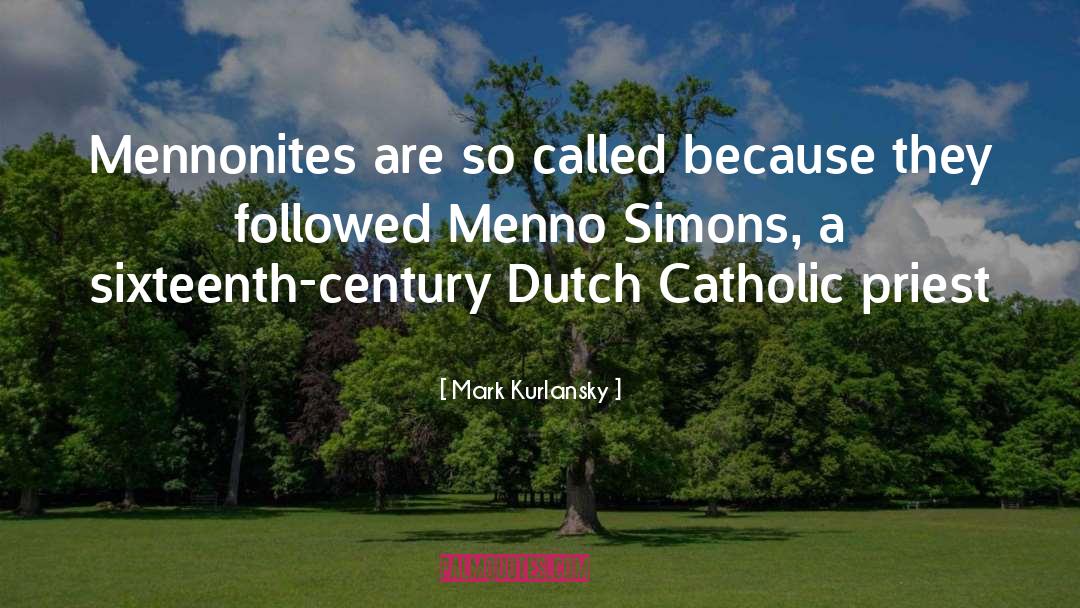
No matter who you were in sixteenth-century Europe, you could be sure of two things: you would be lucky to reach fifty years of age, and you could expect a life of discomfort and pain. Old age tires the body by thirty-five, Erasmus lamented, but half the population did not live beyond the age of twenty. There were doctors and there was medicine, but there does not seem to have been a great deal of healing. Anyone who could afford to seek a doctor's aid did so eagerly, but the doctor was as likely to maim or kill as to cure. His potions were usually noxious and sometimes fatal - but they could not have been as terrible and traumatic as the contemporary surgical methods. The surgeon and the Inquisitor differed only in their motivation: otherwise, their batteries of knives, saws, and tongs for slicing, piercing, burning, and amputating were barely distinguishable. Without any anesthetic other than strong liquor, an operation was as bad as the torments of hell. ~ Philip Ball
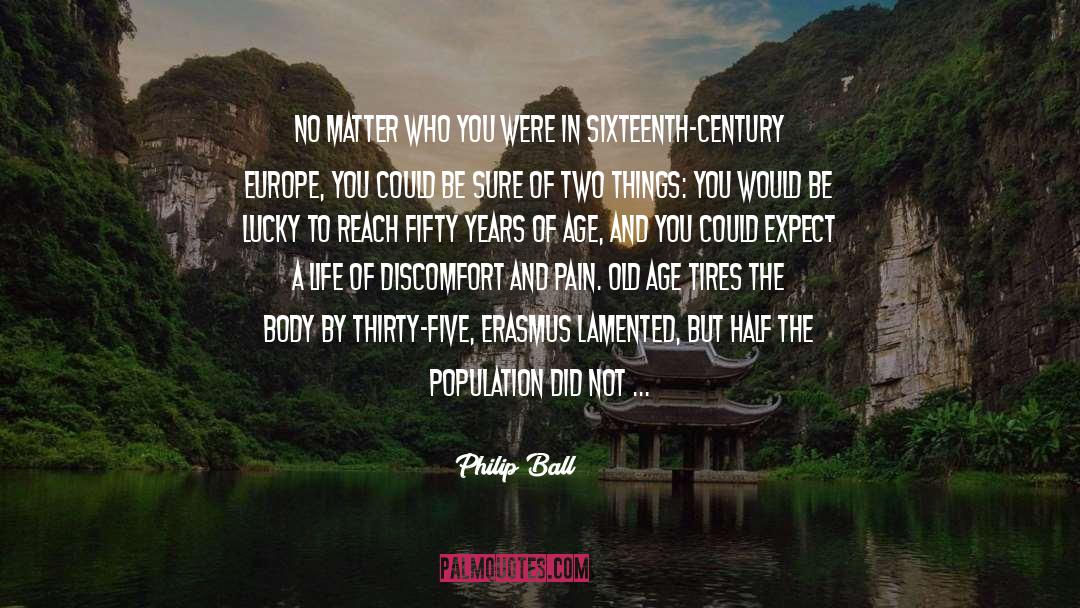
though the Western tradition and particularly the Protestant and evangelical traditions have claimed to be based on the Bible and rooted in scripture, they have by and large developed long-lasting and subtle strategies for not listening to what the Bible is in fact saying. We must stop giving nineteenth-century answers to sixteenth-century questions and try to give twenty-first-century answers to first-century questions. ~ N. T. Wright

Rabbi Loew of sixteenth-century Prague. He is supposed to have formed an artificial human being - a robot - out of clay, just as God had formed Adam out of clay. A clay object, however much it might resemble a human being, is "an unformed substance" (the Hebrew word for it is "golem"), since it lacks the attributes of life. Rabbi Loew, however, gave his golem the attributes of life by making use of the sacred name of God, and set the robot to work protecting the lives of Jews against their persecutors. ~ Isaac Asimov

Protest against Industrial Capitalism from one aspect or another is universal: so was the protest against the condition of European religion at the beginning of the sixteenth century. ~ Hilaire Belloc
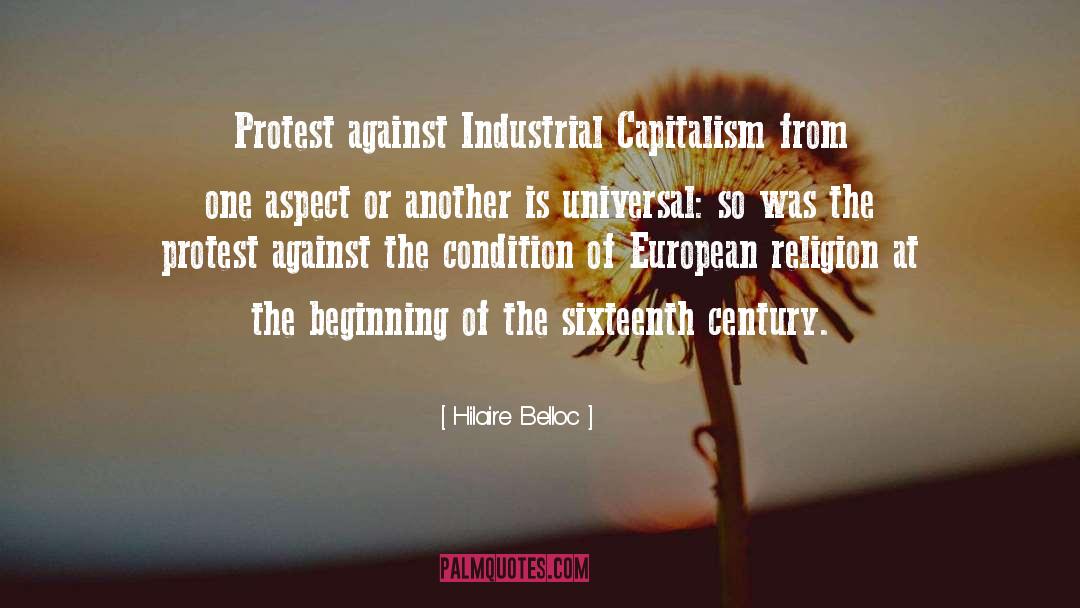
Under English law the penalty for eating meat on Friday was hanging. The law remained on the books until the sixteenth century, when Henry VIII broke with the Vatican. ~ Mark Kurlansky
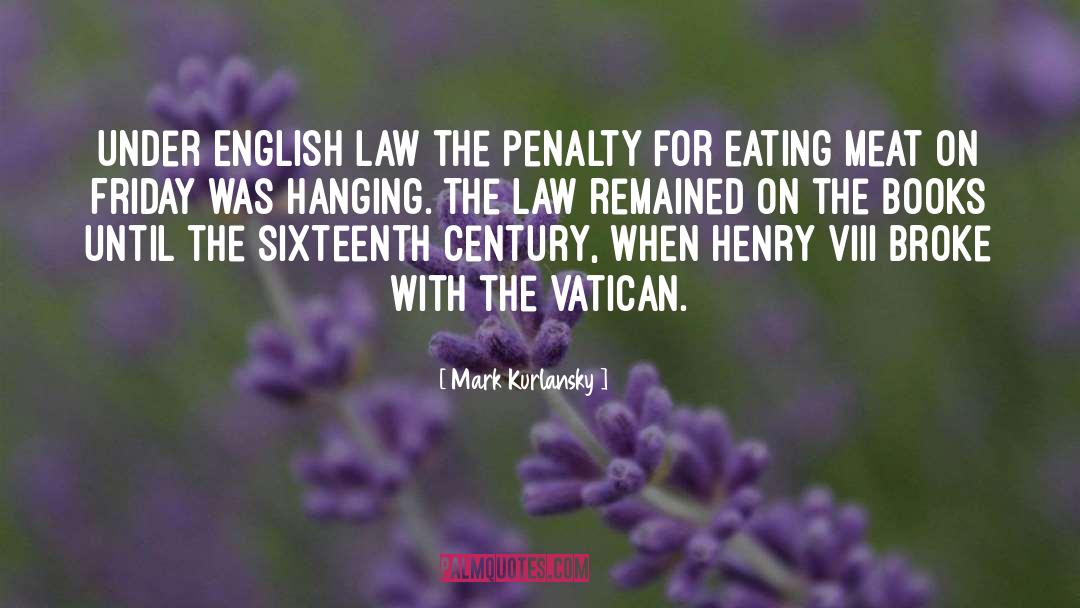
However, the word Byzantine hides this continuity. It is a word even less justifiable to designate the inhabitants of the Christian Greek Roman Empire of the Middle Ages than the word Indian is to designate the sixteenth-century inhabitants of the Americas or the word Iberia (now almost universally adopted among specialists in the English-speaking scholarly world) is to designate medieval Spain. The word Indian is an involuntary error resulting from an unavoidable lack of knowledge about an existing continent, but the words Byzantine and Iberia are artificial academic constructions resulting from ideology. ~ Darío Fernández-Morera

It is rather ironical that in the sixteenth century some people resisted advances in science because they seemed to threaten belief in God; whereas in the twentieth century scientific ideas of a beginning have been resisted because they threatened to increase the plausibility of belief in God. ~ John C. Lennox

Later times have laid all the blame upon the Goths and Vandals, but, however unwilling the partizans of the Christian system may be to believe or to acknowledge it, it is nevertheless true, that the age of ignorance commenced with the Christian system.There was more knowledge in the world before that period, than for many centuries afterwards; and as to religious knowledge, the Christian system, as already said, was only another species of mythology; and the mythology to which it succeeded, was a corruption of an ancient system of theism.
It is owing to this long interregnum of science, and to no other cause, that we have now to look back through a vast chasm of many hundred years to the respectable characters we call the Ancients. Had the progression of knowledge gone on proportionably with the stock that before existed, that chasm would have been filled up with characters rising superior in knowledge to each other; and those Ancients we now so much admire would have appeared respectably in the background of the scene. But the christian system laid all waste; and if we take our stand about the beginning of the sixteenth century, we look back through that long chasm, to the times of the Ancients, as over a vast sandy desert, in which not a shrub appears to intercept the vision to the fertile hills beyond. ~ Thomas Paine
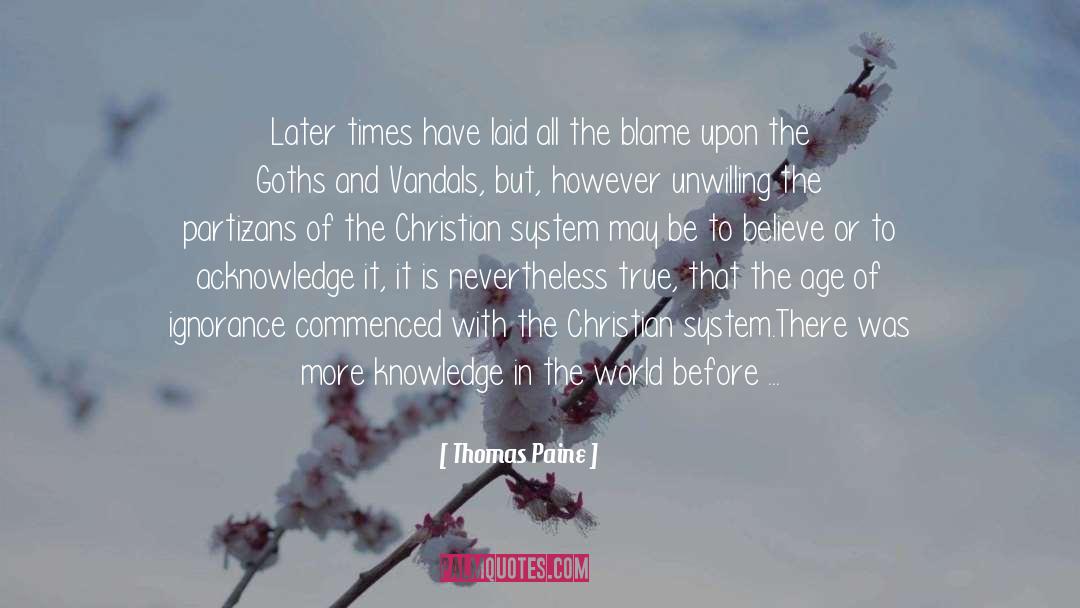
Children being children, however, the grotesque Hopping Pot had taken hold of their imaginations. The solution was to jettison the pro-Muggle moral but keep the warty cauldron, so by the middle of the sixteenth century a different version of the tale was in wide circulation among wizarding families. In the revised story, the Hopping Pot protects an innocent wizard from his torch-bearing, pitchfork-toting neighbours by chasing them away from the wizard's cottage, catching them and swallowing them whole. ~ J.K. Rowling

Peasant families ate pork, beef, or game only a few times a year; fowls and eggs were eaten far more often. Milk, butter, and hard cheeses were too expensive for the average peasant. As for vegetables, the most common were cabbage and watercress. Wild carrots were also popular in some places. Parsnips became widespread by the sixteenth century, and German writings from the mid-1500s indicate that beet roots were a preferred food there. Rutabagas were developed during the Middle Ages by crossing turnips with cabbage, and monastic gardens were known for their asparagus and artichokes. However, as a New World vegetable, the potato was not introduced into Europe until the late 1500s or early 1600s, and for a long time it was thought to be merely a decorative plant.
"Most people ate only two meals a day. In most places, water was not the normal beverage. In Italy and France people drank wine, in Germany and England ale or beer. ~ Patricia D. Netzley

All the sources are secondary, and few are new; I have not mastered recent scholarship of the early sixteenth century. ~ William Manchester

Our nation was born in genocide when it embraced the doctrine that the original American, the Indian, was an inferior race. Even before there were large numbers of Negroes on our shore, the scar of racial hatred had already disfigured colonial society. From the sixteenth century forward, blood flowed in battles over racial supremacy. We are perhaps the only nation which tried as a matter of national policy to wipe out its indigenous population. Moreover, we elevated that tragic experience into a noble crusade. Indeed, even today we have not permitted ourselves to reject or feel remorse for this shameful episode. Our literature, our films, our drama, our folklore all exalt it. Our children are still taught to respect the violence which reduced a red-skinned people of an earlier culture into a few fragmented groups herded into impoverished reservations. ~ Martin Luther King, Jr.

I go out every night with a homemade sextant and sight Deneb. It's kind of silly if you think about it. I'm in my space suit on Mars and I'm navigating with sixteenth-century tools. But hey, they work. ~ Andy Weir

Pre-Industrial Europe: Where Enlightenment Died In the sixteenth century there was a religious and political upheaval in Europe. As part of the chaos of that time, the religious and political forces began to impose their agenda into every aspect of human life, especially ~ Stephan Aarstol
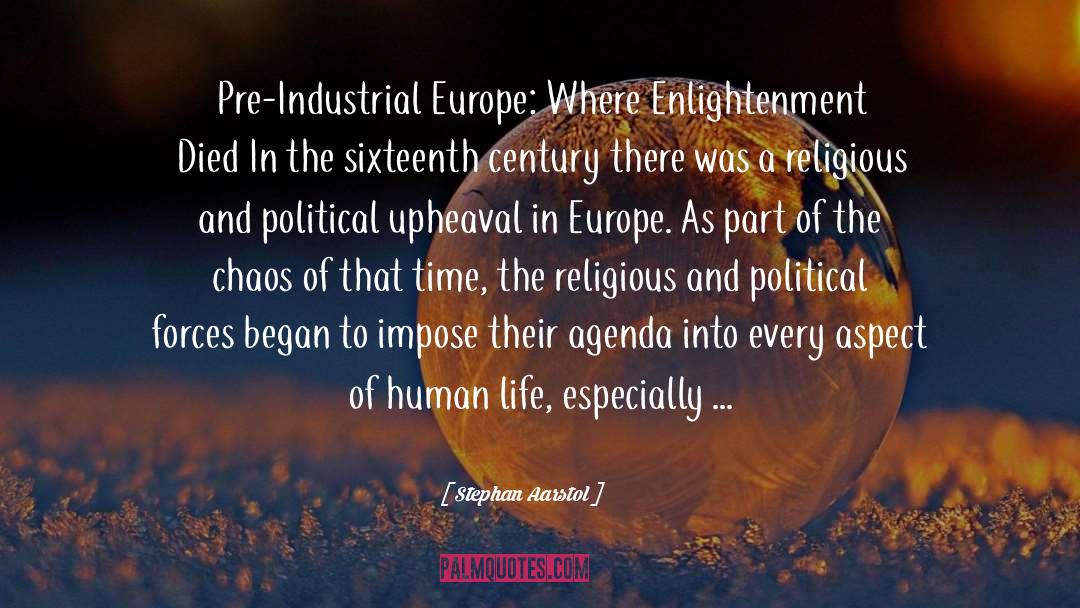
author" meant "father," from the Latin word for "master," auctor. Auctor-ship implied authority, something that, in most of the world, had been the divine right of kings and religious leaders since Gilgamesh ruled Uruk four thousand years earlier. It was not to be shared with mere mortals. An "inventor," from invenire, "find," was a discoverer, not a creator, until the 1550s. "Credit," from credo, "trust," did not mean "acknowledgment" until the late sixteenth century. ~ Kevin Ashton

Food history is as important as a baroque church. Governments should recognize cultural heritage and protect traditional foods. A cheese is as worthy of preserving as a sixteenth-century building. ~ Carlo Petrini

There but for the grace of God,' said John Bradford in the sixteenth century, on seeing wretches led to execution, 'go I.' What this apparently compassionate observation really means--not that it really 'means' anything--is, 'There by the grace of God goes someone else. ~ Christopher Hitchens

In the middle of the sixteenth century, Spain was the incubus of Europe. Gloomy and portentous, she chilled the world with her baneful shadow. ~ Francis Parkman

Problem?" a silky voice murmured.
I ignored Torin and turned my attention to the stack of notebooks near the couch.
"I am sorry for what I said about your father this morning," he said. "It was beneath me."
I still didn't say anything.
"Being trapped thus is incredibly frustrating for me, and occasionally I take it out on others. Again, I apologize. Now, if you'd like, I can help you with what you're seeking."
Knowing I'd probably regret it, I crossed the rom and yanked the canvas off the mirror. As before, he was sitting on the table, smirking at me.
"Jackass, jackass on the wall, where's the info on Hex Hall?"
Torin laughed long and loud at that, and I saw that his teeth were slightly crooked. Seeing as how he was from the sixteenth century, I guess he was lucky to have any teeth at all.
"Oh, I do like you," he said, wiping tears from his eyes. "All these bloody warrior women are so serious. It's nice to have a real wit around the place again. ~ Rachel Hawkins
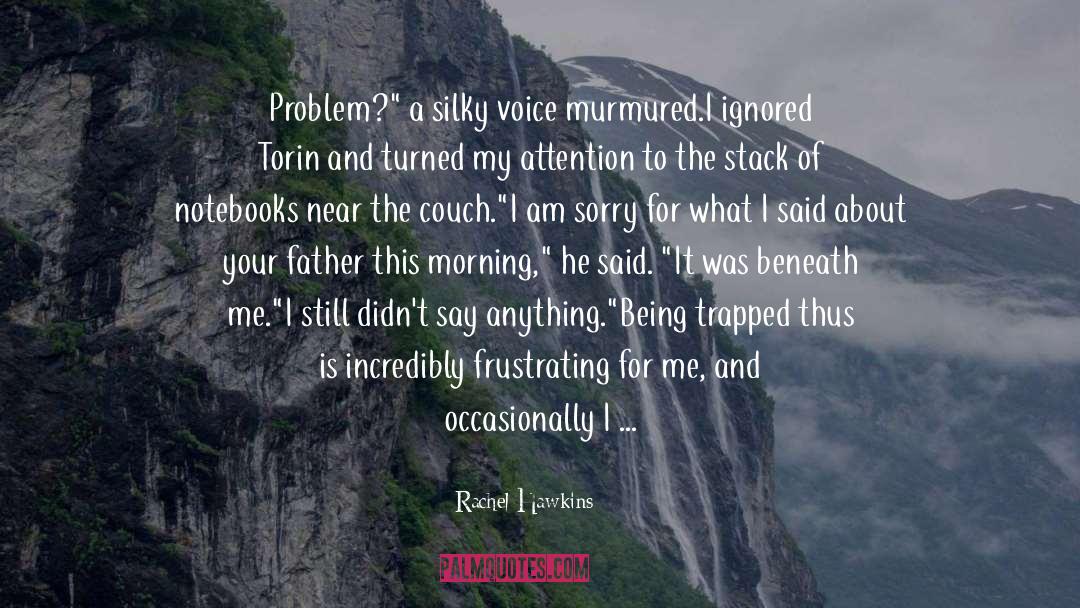
Phyllis Tickle, in her book The Great Emergence,2 argues that we are undergoing the most recent of our every-500-year "rummage sales" - an upheaval in culture and worldview that will inevitably reshape our faith interpretations and institutions as surely as the Great Schism of the eleventh century and the Great Reformation of the sixteenth century. This tsunami of change is well under way, marked by the postmodern and post-Christian sensibilities of the millennial generation. ~ Marjorie, J. Thompson
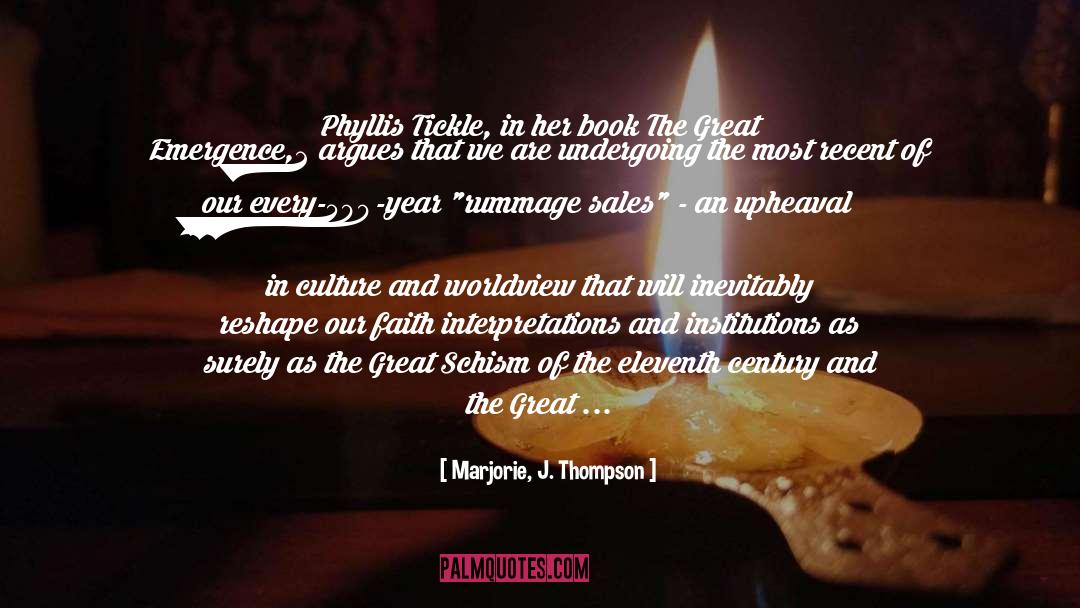
Yet genius of a sort must have existed among women as it must have existed among the working classes. Now and again an Emily Bronte or a Robert Burns blazes out and proves its presence. But certainly it never got itself on paper. When, however, one reads of a witch being ducked, of a woman possessed by devils, of a wise woman selling herbs, or even of a very remarkable man who had a mother, then I think we are on the track of a lost novelist, a suppressed poet, of some mute and inglorious Jane Austen, some Emily Bronte who dashed her brains out on the moor or mopped and mowed about the highways crazed with the torture that her gift had put her to.
[…]any woman born with a great gift in the sixteenth century would certainly have gone crazed, shot herself, or ended her days in some lonely cottage outside the village, half witch, half wizard, feared and mocked at. For it needs little skill in psychology to be sure that a highly gifted girl who had tried to use her gift for poetry would have been so thwarted and hindered by other people, so tortured and pulled asunder by her own contrary instincts, that she must have lost her health and sanity to a certainty. ~ Virginia Woolf
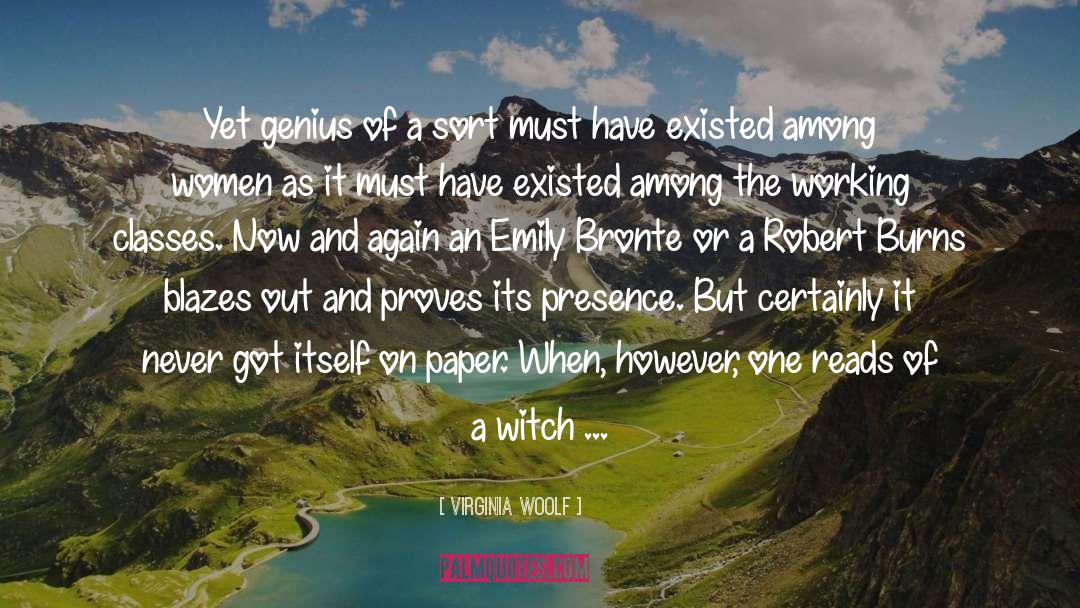
The modern tendency towards increasing specialization in all branches of research and scholarship has discouraged comparative studies of the arts; and what we seldom do we generally distrust. But our distrust of analogies was not shared by the sixteenth century, which inherited from antiquity a habit of drawing parallels as a matter of course. ~ John Shearman
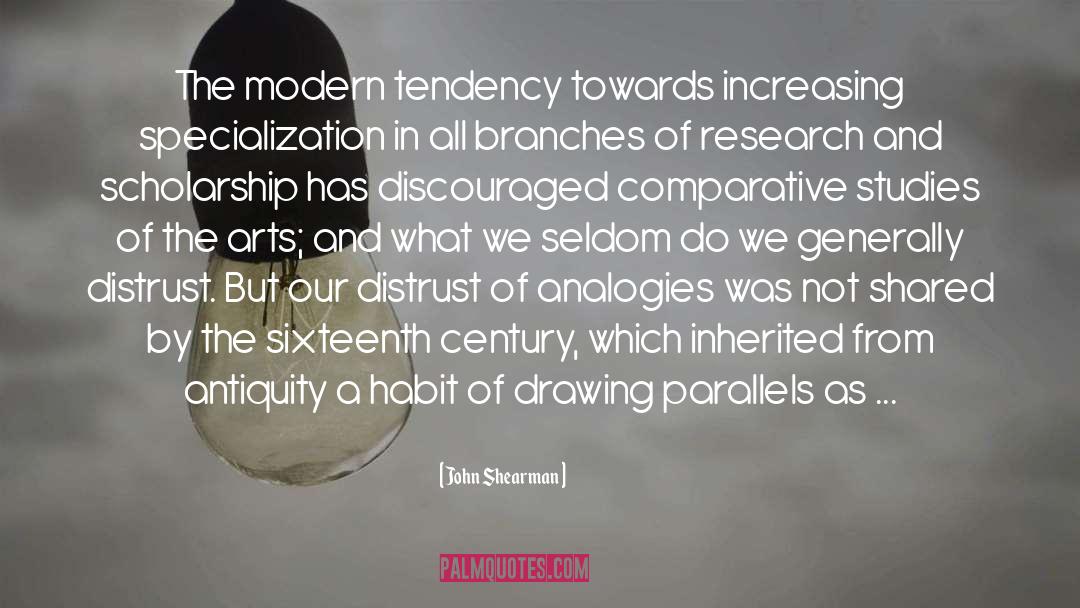
If today you can take a thing like evolution and make it a crime to teach it in the public school, tomorrow you can make it a crime to teach it in the private schools, and the next year you can make it a crime to teach it to the hustings or in the church. At the next session you may ban books and the newspapers. Soon you may set Catholic against Protestant and Protestant against Protestant, and try to foist your own religion upon the minds of men. If you can do one you can do the other. Ignorance and fanaticism is ever busy and needs feeding. Always it is feeding and gloating for more. Today it is the public school teachers, tomorrow the private. The next day the preachers and the lectures, the magazines, the books, the newspapers. After while, your honor, it is the setting of man against man and creed against creed until with flying banners and beating drums we are marching backward to the glorious ages of the sixteenth century when bigots lighted fagots to burn the men who dared to bring any intelligence and enlightenment and culture to the human mind. ~ Clarence Darrow
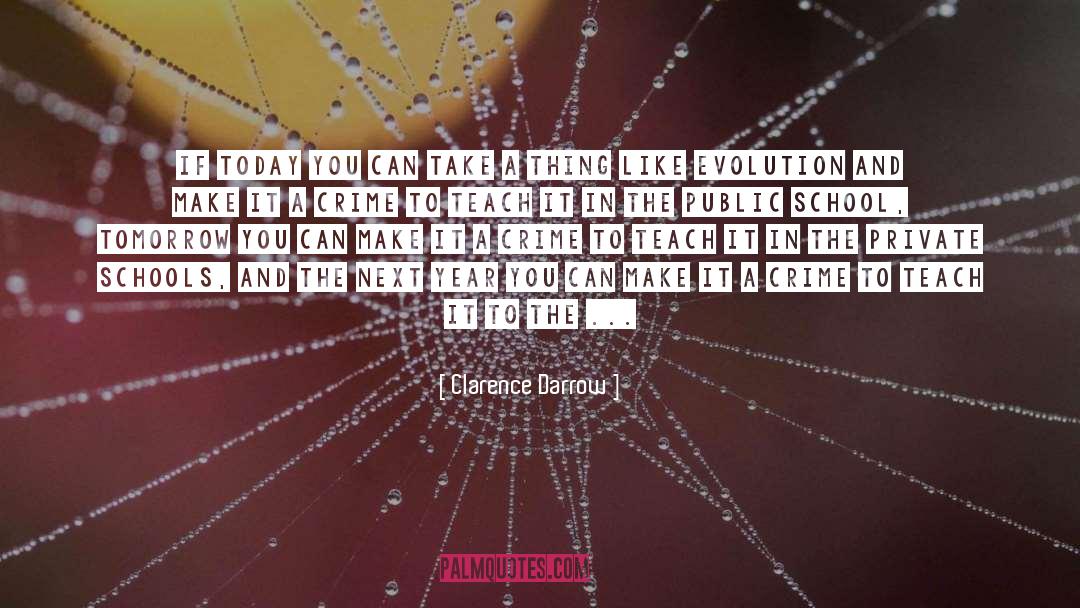
A "file" was originally - in sixteenth-century England - a wire on which slips and bills and notes and letters could be strung for preservation and reference. Then came file folders, file drawers, and file cabinets; then the electronic namesakes of all these; and the inevitable irony. Once a piece of information is filed, it is statistically unlikely ever to be seen again by human eyes. ~ James Gleick

It is beyond a doubt that during the sixteenth century, and the years immediately preceding and following it, poisoning had been brought to a pitch of perfection which remains unknown to modern chemistry, but which is indisputably proved by history. Italy, the cradle of modern science, was at that time, the inventor and mistress of these secrets, many of which are lost. ~ Honore De Balzac
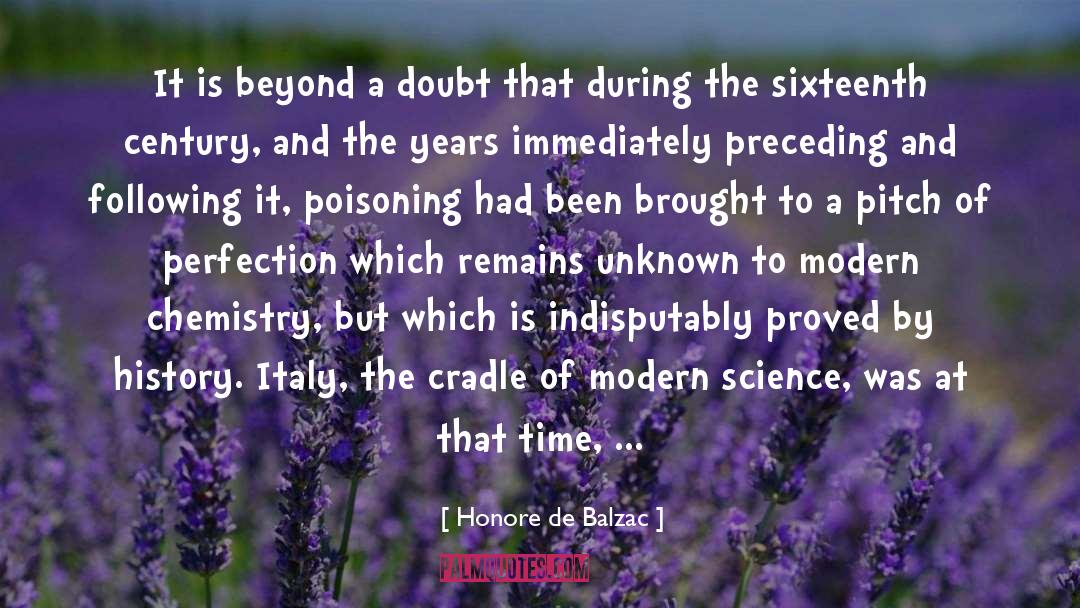
The sixteenth-century schism was really a belated revolt of the thirteenth-century pessimists. It was a back-wash of the old Augustinian Puritanism against the Aristotelian liberality. ~ G.K. Chesterton
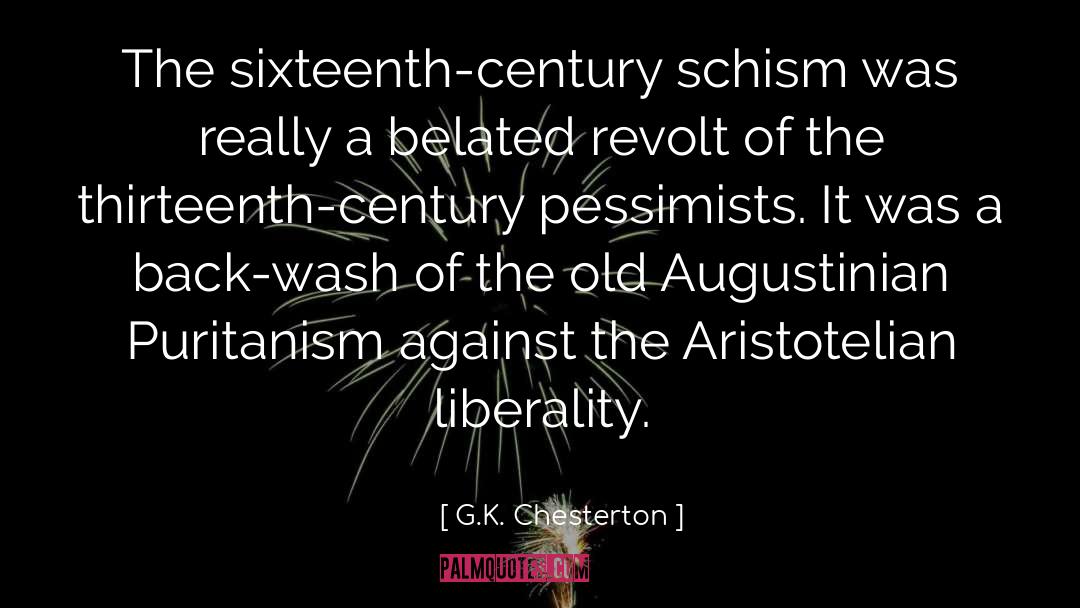
Machiavelli is not an evil genius, nor a demon, nor a miserable and cowardly writer; he is nothing but the fact. And he is not only the Italian fact; he is the European fact, the fact of the sixteenth century. He seems hideous, and so he is, in the presence of the moral idea of the nineteenth. ~ Victor Hugo
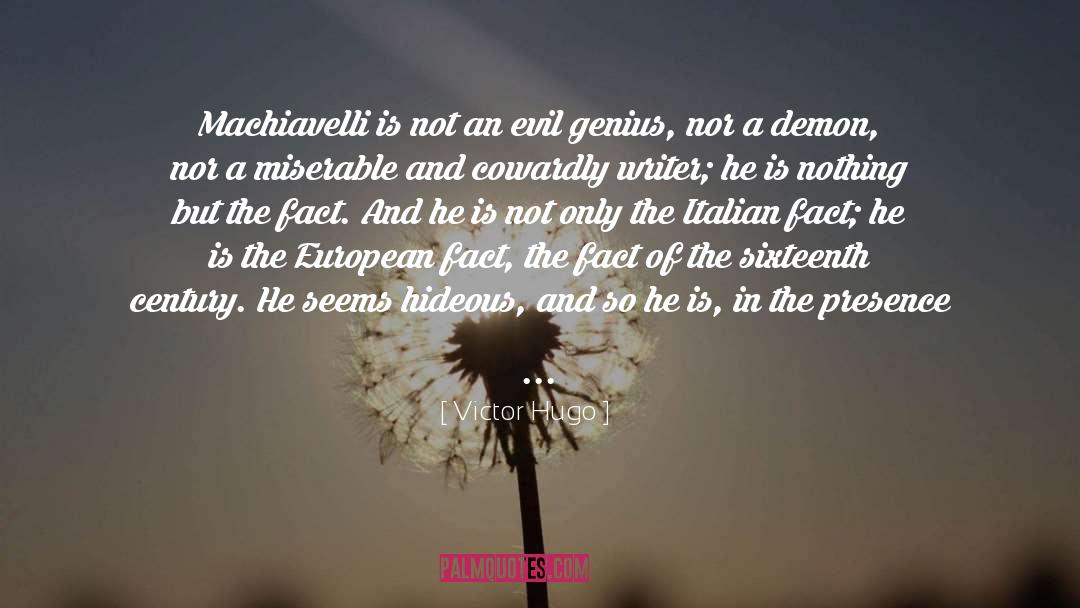
Erasmus of Rotterdam, a sixteenth-century priest who was committed to reforming the church from within, said, When faith came to be in writings rather than in hearts, contention grew hot and love grew cold. That which is forced cannot be sincere, and that which is not voluntary cannot please Christ. ~ Shane Claiborne
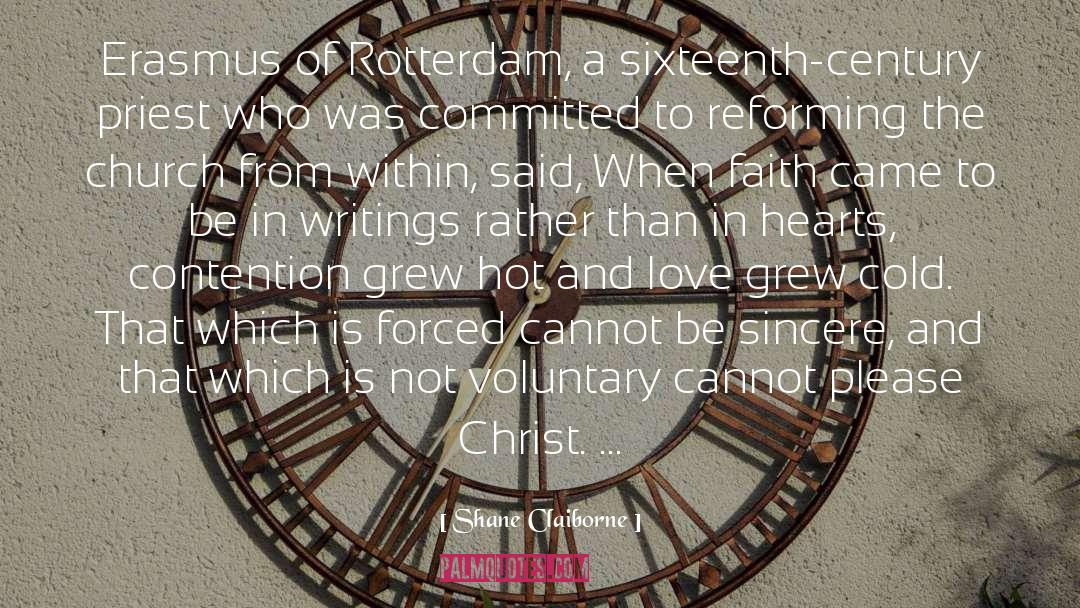
Modern women had their own self-made guilt to make them miserable, but the sixteenth-century people had diseases, their fear of the unknown, their ignorance of medicine, and constant and ever-present death to haunt them. ~ Jude Deveraux
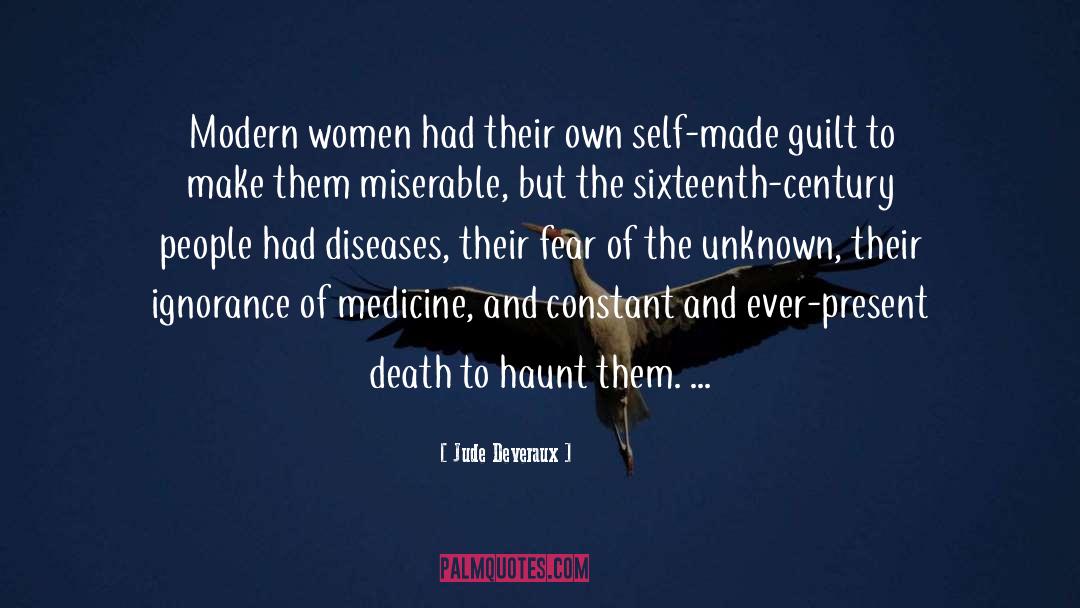
In Middle English, cod meant "a bag or a sack", or by inference, "a scrotum", which is why the outrageous purse that sixteenth-century men wore at their crotch to give the appearance of enormous and decorative genitals was called a codpiece. ~ Mark Kurlansky
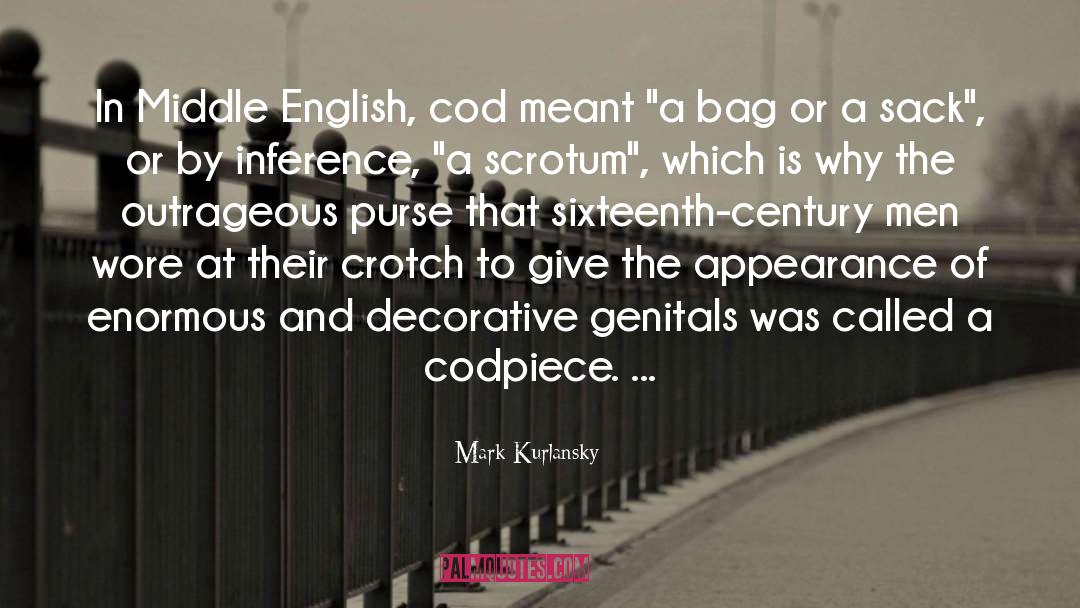
I ended up going into this big art historical argument.' [Barry Blinderman] invoked, for example, Matthias Grünewald's Isenheim altarpiece, painted in the sixteenth century for a monastery where monks cared for people with skin diseases - so the suffering Christ in that painting shows symptoms of skin disease. 'It's because he's the man of sorrows,' Blinderman argued. 'He takes on the suffering of the world. So if Christ were to appear physically today, one of the sicknesses he would have to take on would be drug addiction. ~ Cynthia Carr

So, based on the historical records of past centuries, two churches co-existed through the course of time before the Protestant Reformation of the sixteenth century. One church, speaking from Rome, espoused the formation of Sunday as a substitute for the Sabbath as the day of weekly worship. The other - scattered, persecuted, and nameless, yet thriving - advanced the apostolic agenda, which included the observance of the Saturday Sabbath of the fourth commandment. ~ Daniel Knauft
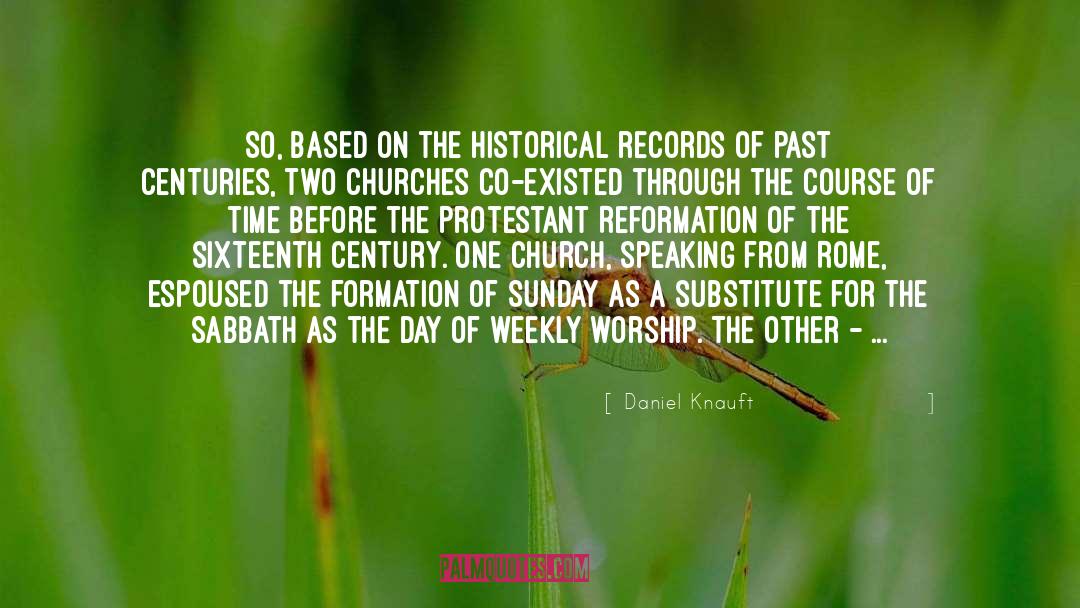
In the ancient city of London, on a certain autumn day in the second quarter of the sixteenth century, a boy was born to a poor family of the name of Canty, who did not want him. ~ Mark Twain

The hymns were born in the fifteenth or sixteenth century or earlier, and listening to them was like licking an icicle: the same chill, the same purity. ~ Mary Cantwell

I said to him, "State your business, mortal!" There was no need for me to call him "mortal" or to speak like a sixteenth-century knight. It just sounded cool. ~ Alan Goldsher

Sixteenth-century philosopher Michel de Montaigne once wrote, When I play with my cat, how do I know that she is not playing with me rather than I with her? ~ Michio Kaku

Appetite is essentially insatiable, and where it operates as a criterion of both action and enjoyment (that is, everywhere in the Western world since the sixteenth century) it will infallibly discover congenial agencies (mechanical and political) of expression. ~ Marshall McLuhan
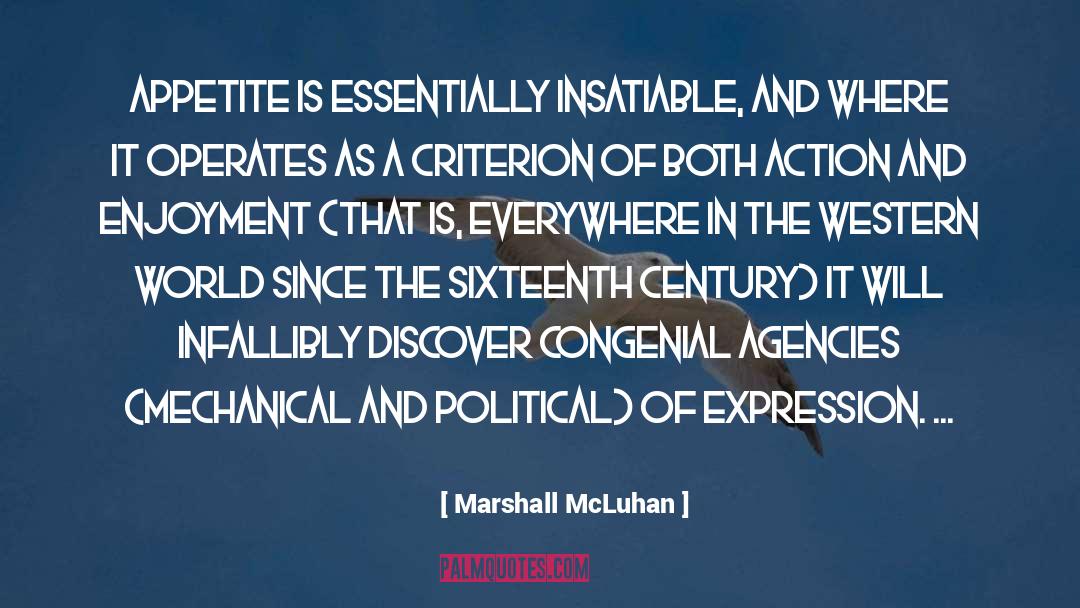
A number of those sections of the old Empire which were most highly developed economically and most favored by natural resources and situation, in particular a majority of the wealthy towns went over to Protestantism in the sixteenth century The results of that circumstance favor the Protestants even today in their strug gle for economic existence. ~ Max Weber

Think about it. People in the sixteenth century - not to mention in Jesus's time - didn't look like this: perfect skin, perfect hairdos, spotless clothes. These are people who went to the bathroom in the street, for God's sake. There's no way they looked like this. But that's how we're going to remember them. Our alabaster past. When nothing else is left, art will become the truth of the time. Then people will get to the nineteenth and twentieth centuries and wonder what happened - how we all became so imperfect. ~ Julia David Levithan

In sixteenth-century Spain, women had little opportunity for meaningful lives outside marriage, except as members of religious orders. While convents were often filled with dissatisfied young women, it must also be said that convent life empowered women in many ways. A convent was an acceptable place for women to be free of many of the social constraints of the time. ~ Helen LaKelly Hunt

Probit analysis provides a mathematical foundation for the doctrine first established by the sixteenth-century physician Paracelsus: "Only the dose makes a thing not a poison." Under the Paracelsus doctrine, all things are potential poisons if given in a high enough dose, and all things are nonpoisonous if given in a low enough dose. To this doctrine, Bliss added the uncertainty associated with individual results. One reason why many foolish users of street drugs die or become very sick on cocaine or heroin or speed is that they see others using the drugs without being killed. They are like Bliss's insects. They look around and see some of their fellow insects still alive. However, knowing that some individuals are still living provides no assurance that a given individual will survive. There is no way of predicting the response of a single individual. ~ David Salsburg

While our men seem thoroughly abreast of the times on almost every other subject, when they strike the woman question they drop back into sixteenth century logic. They leave nothing to be desired generally in regard to gallantry and chivalry, but they actually do not seem sometimes to have outgrown that old contemporary of chivalry
the idea that women may stand on pedestals or live in doll houses, ... but they must not furrow their brows with thought or attempt to help men tug at the great questions of the world. ~ Anna Julia Cooper
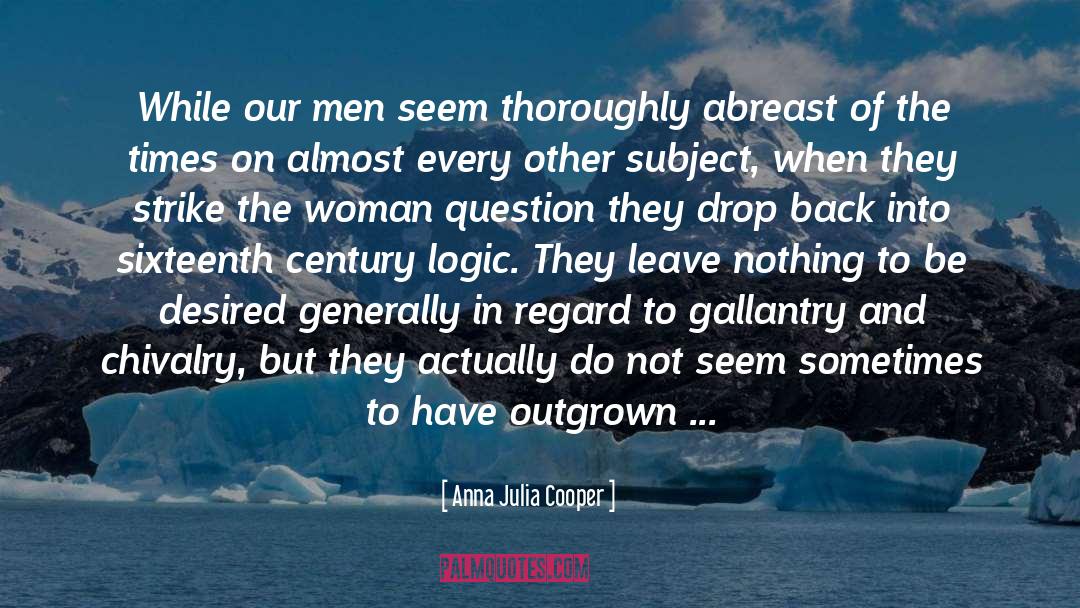
Every saint has a past, the sixteenth-century poet had said, and every sinner has a future. ~ Jan Karon

The sixteenth-century Heidelberg Catechism, which unfortunately is little known among believers today, provides a framework for understanding the monergistic work of the Spirit. It's structured around three words: guilt, grace, and gratitude. These words refer to our guilt, God's grace, and our response of gratitude. ~ Anonymous

The fact that the scientist has succeeded where the magician failed has put such a wide contrast between them in popular thought that the real story of the birth of Science is misunderstood. You will even find people who write about the sixteenth century as if Magic were a medieval survival and Science the new thing that came in to sweep it away. Those who have studied the period know better. There was very little magic in the Middle Ages: the sixteenth and seventeenth centuries are the high noon of magic. The serious magical endeavour and the serious scientific endeavour are twins: one was sickly and died, the other strong and throve. But they were twins. They were born of the same impulse. I allow that some (certainly not all) of the early scientists were actuated by a pure love of knowledge. But if we consider the temper of that age as a whole we can discern the impulse of which I speak. There is something which unites magic and applied science while separating both from the 'wisdom' of earlier ages. For the wise men of old the cardinal problem had been how to conform the soul to reality, and the solution had been knowledge, self-discipline, and virtue. For magic and applied science alike the problem is how to subdue reality to the wishes of men: the solution is a technique; and both, in the practice of this technique, are ready to do things hitherto regarded as disgusting and impious - such as digging up and mutilating the dead. ~ C.S. Lewis
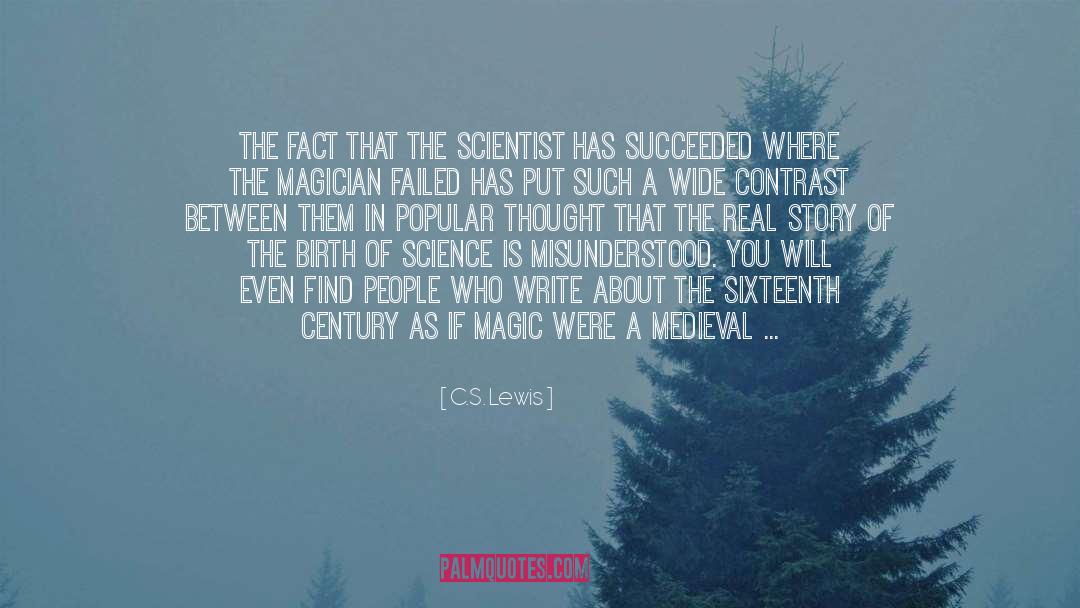
All this "confusion" came to an end twenty years after the Royal Visit, when two Bohemian brothers, claiming to be the illegitimate grandsons of Prince Charlie himself, appeared on the scene with their own tartan pattern book, portentously titled Vestiarum Scoticum. James and Charles Sobieski Stuart, as they called themselves, had selected seventy-five different setts, each linked to a specific clan, from a sixteenth-century manuscript they claimed had once belonged to Mary Queen of Scots's father confessor - although they could never quite produce the manuscript when others asked to see it. ~ Arthur Herman

Until the sixteenth century, men
priests, academics, judges, merchants, princes, and many others
wore skirts, or robes. For men, the skirt was a 'sign of leisure and a symbol of dignity,' writes Quentin Bell. This is still true for men in high positions. After all, can you imagine the Pope, or Professor Dumbledore, wearing trousers? Have you ever seen a depiction of God wearing pants? ~ Tim Gunn

You don't have the touching rights." "How do I get those?" Stop being a self-absorbed spoiled baby. "You get those if I fall in love with you." He stopped. "In love. You're serious?" "Yes." That would shut him up. "What is this, the sixteenth century? Should I write you a sonnet next?" "Is it going to be a good sonnet? ~ Ilona Andrews

Sixteenth-century litigation combined the qualities of tedium, hardship, brutality, and injustice that tested character and endurance, with the element of pure chance that appealed to the gambler, the fear of defeat and ruin, and the hope of victory and humiliation of the enemy. It had everything that war can offer except the delights of shedding blood. ~ Lawrence Stone
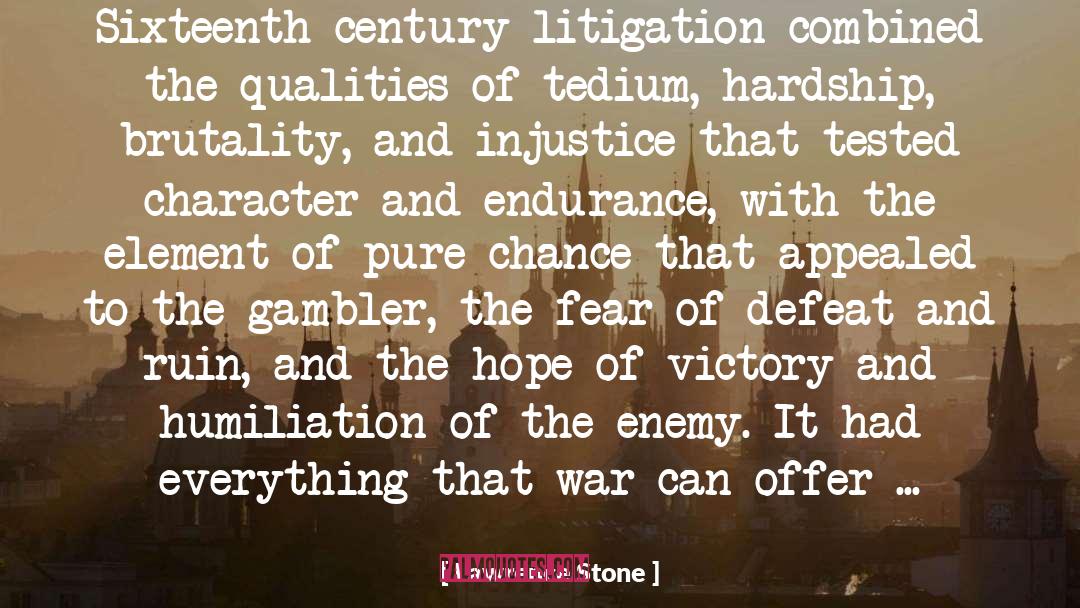
Vast flocks of fieldfares netted the sky, turning it to something strangely like a sixteenth-century sleeve sewn with pearls. ~ Helen Macdonald

Denunciation in Russia has a long history, going back at least as far as the sixteenth century and the testingly protracted reign of Ivan the Terrible (1533– 84). "Spy or die" was, more or less, the oath you swore. This practice, increasingly institutionalized under the old regime, was a tsarist barbarity that Lenin might have been expected to question. ~ Martin Amis

Potatoes came to Europe from the New World in the early sixteenth century. Sir Francis Drake is thought to have introduced the potato to England, and shortly afterward Sir Walter Raleigh tried planting them on his Irish estates. When ~ Ryan Hackney

Emerence understood nothing of this. She rejected it. Like the leader of some primitive tribe she flew her standard - a sequinned evening dress - against the banner of the Lamb of God. The old woman opposed the church with an almost sixteenth-century fanaticism; not only the priesthood, but God himself and all the biblical characters, with the single exception of Joseph, whom she revered for his occupation: her own father had been a carpenter. ~ Magda Szabo
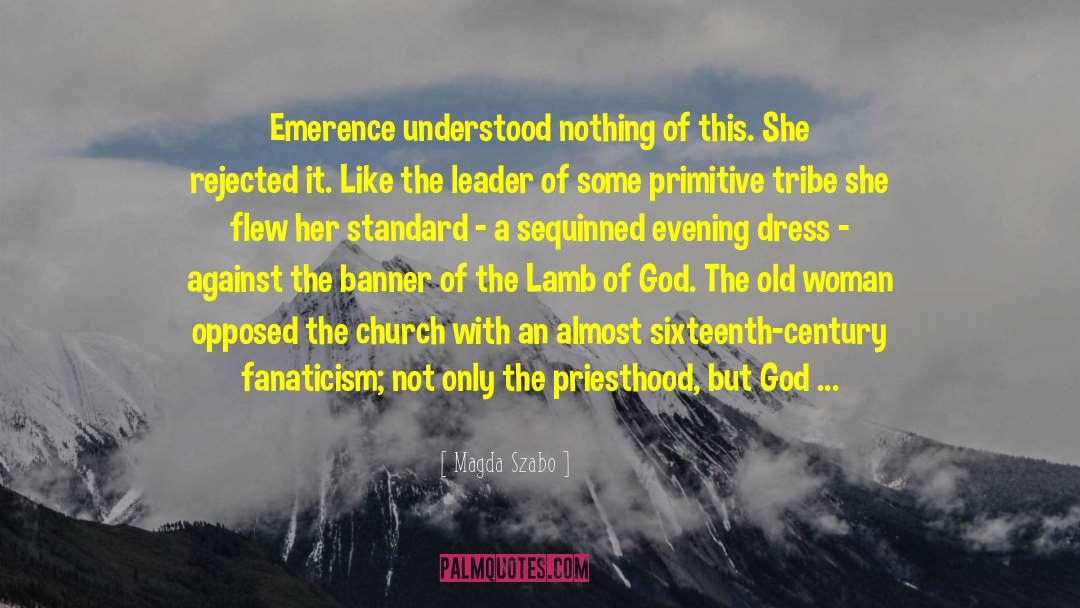
A sixteenth-century poet, especially one who knew that he ought to be a curious and universal scholar, would possess some notions, perhaps not strictly philosophical, about the origin of the world and its end, the eduction of forms from matter, and the relation of such forms to the higher forms which are the model of the world and have their being in the mind of God. He might well be a poet to brood on those great complementary opposites: the earthly and heavenly cities, unity and multiplicity, light and dark, equity and justice, continuity--as triumphantly exhibited in his own Empress--and ends--as sadly exhibited in his own Empress. Like St. Augustine he will see mutability as the condition of all created things, which are immersed in time. Time, he knows, will have a stop--perhaps, on some of the evidence, quite soon. Yet there is other evidence to suggest that this is not so. It will seem to him, at any rate, that his poem should in part rest on some poetic generalization-some fiction--which reconciles these opposites, and helps to make sense of the discords, ethical, political, legal, and so forth, which, in its completeness, it had to contain.
This may stand as a rough account of Spenser's mood when he worked out the sections of his poem which treat of the Garden of Adonis and the trial of Mutability, the first dealing with the sempiternity of earthly forms, and the second with the dilation of being in these forms under the shadow of a final end. Perhaps the ~ Frank Kermode

The story of liberalism, as liberals tell it, is rather like the legend of St. George and the dragon. After many centuries of hopelessness and superstition, St. George, in the guise of Rationality, appeared in the world somewhere about the sixteenth century. The first dragons upon whom he turned his lance were those of despotic kingship and religious intolerance. These battles won, he rested for a time, until such questions as slavery, or prison conditions, or the state of the poor, began to command his attention. During the nineteenth century, his lance was never still, prodding this way and that against the inert scaliness of privilege, vested interest, or patrician insolence. But, unlike St. George, he did not know when to retire. The more he succeeded, the more he became bewitched with the thought of a world free of dragons, and the less capable he became of ever returning to private life. He needed his dragons. He could only live by fighting for causes - the people, the poor, the exploited, the colonially oppressed, the underprivileged and the underdeveloped. As an ageing warrior, he grew breathless in his pursuit of smaller and smaller dragons - for the big dragons were now harder to come by. ~ Kenneth Minogue
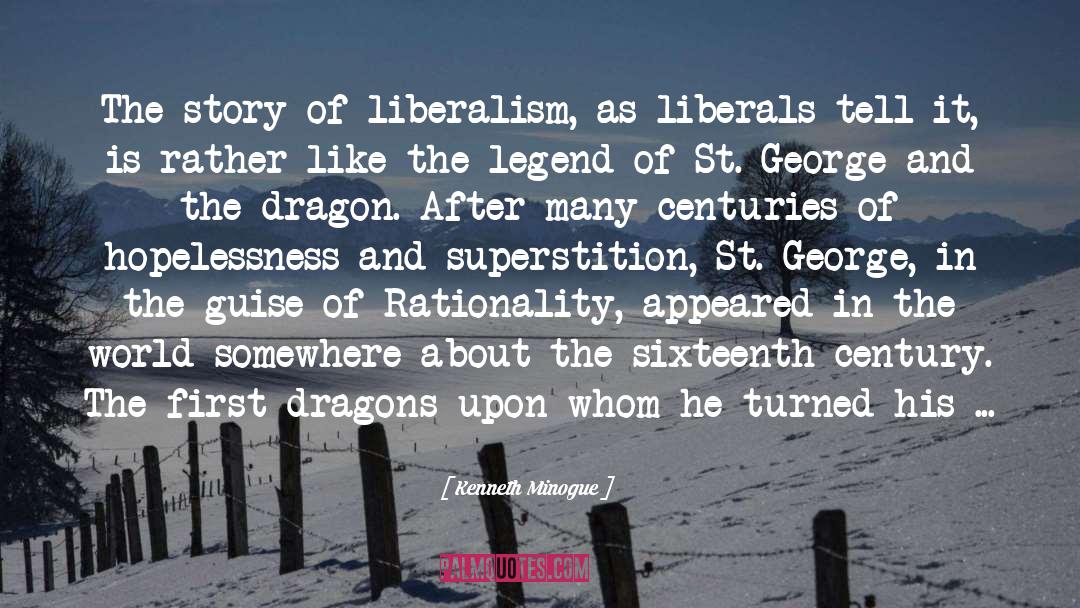
The Mennonites have Dirk Willems, who was arrested for his religious beliefs in the sixteenth century and held in a prison tower. With the aid of a rope made of knotted rags, he let himself down from the window and escaped across the castle's ice-covered moat. A guard gave chase. Willems made it safely to the other side. The guard did not, falling through the ice into the freezing water, and Willems stopped, went back, and pulled his pursuer to safety. For his act of compassion, he was taken back to prison, tortured, and then burned slowly at the stake as he repeated "Oh, my Lord, my God" seventy times over.8 ~ Malcolm Gladwell

The women in the kitchen sang: Sarampión toca la puerta. Viruela dice: ¿Quién es? Y Escarlatina contesta: ¡Aquí estamos los tres! The cook would sometimes shout a little madly, "Sing it again!" And the women would sing again: Measles knocks at the door. Smallpox asks, Who's there? And Scarlet Fever replies: All three of us are here! ~ Sharman Apt Russell

Whatever the reason, the fact is that there was no widespread catechetical teaching for Christian children. Things were going to change. The growing awareness of the need for Christian education was one of the chief forces behind the desire in the sixteenth century to reform the rite of baptism. ~ Hughes Oliphant Old
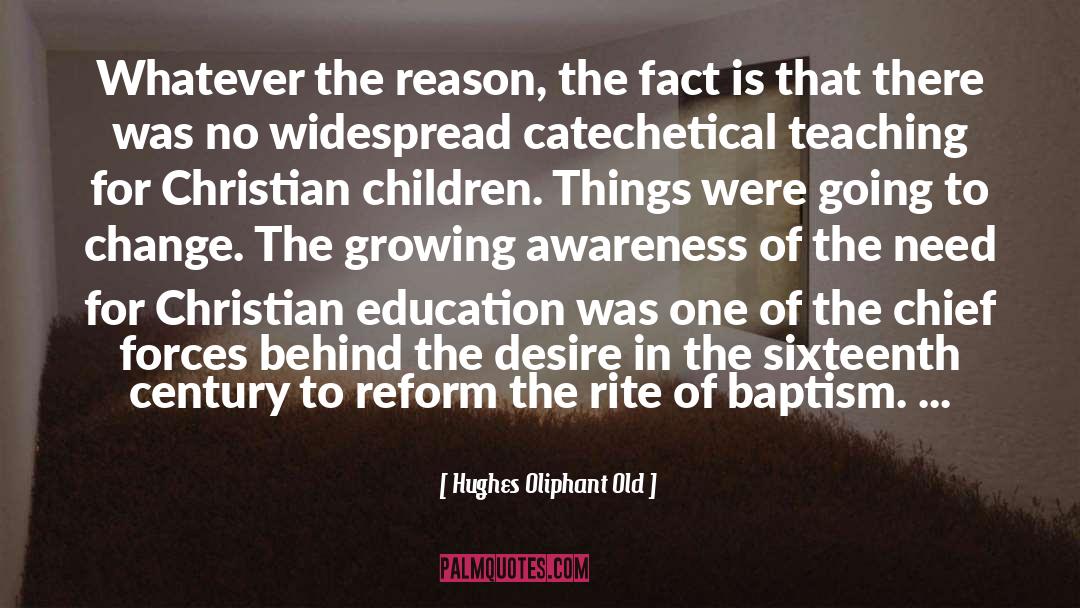
At the end of the 1400s, the world changed. Two key dates can mark the beginning of modern times. In 1485, the Wars of the Roses came to an end, and, following the invention of printing, William Caxton issued the first imaginative book to be published in England - Sir Thomas Malory's retelling of the Arthurian legends as Le Morte D'Arthur. In 1492, Christopher Columbus's voyage to the Americas opened European eyes to the existence of the New World. New worlds, both geographical and spiritual, are the key to the Renaissance, the 'rebirth' of learning and culture, which reached its peak in Italy in the early sixteenth century and in Britain during the reign of Queen Elizabeth I, from 1558 to 1603. ~ Ronald Carter
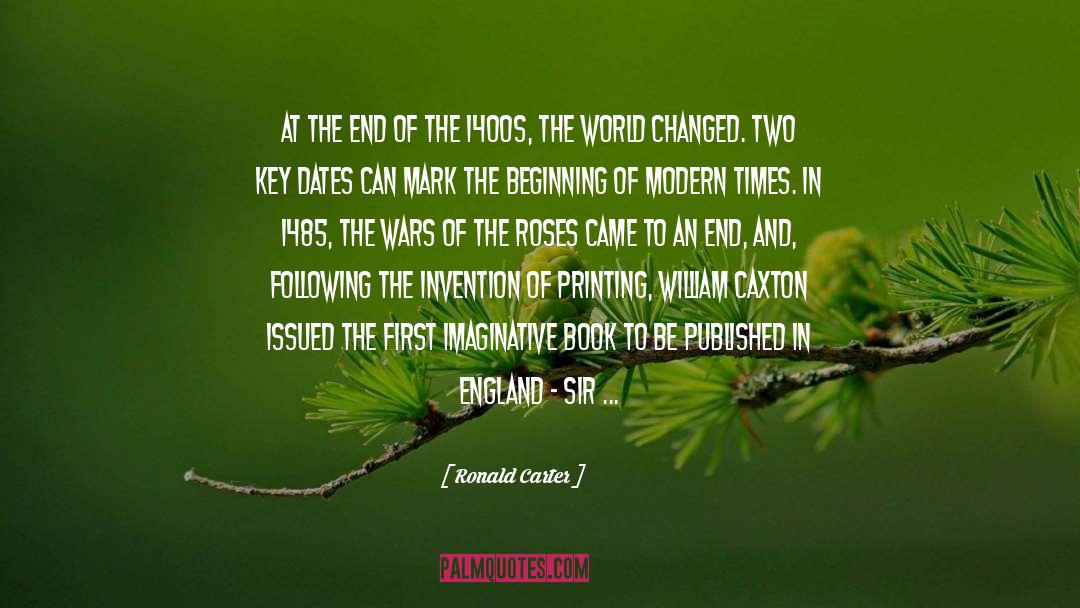
[Dan] Brown states that five million women were killed by the Church as witches. In fact, modern research has shown that the witch hunts began in the sixteenth century in Europe and that between 30,000 and 50,000 men and women were burned to death for the crime of witchcraft. However, 90 per cent of those trials took place before secular tribunals in countries such as Germany and France where by the 1500s the Church had lost most of its influence in judicial matters. Indeed, it was precisely in countries like Spain and Italy where the Catholic Church still had influence that there were almost no witchcraft trials. ~ Michael Coren
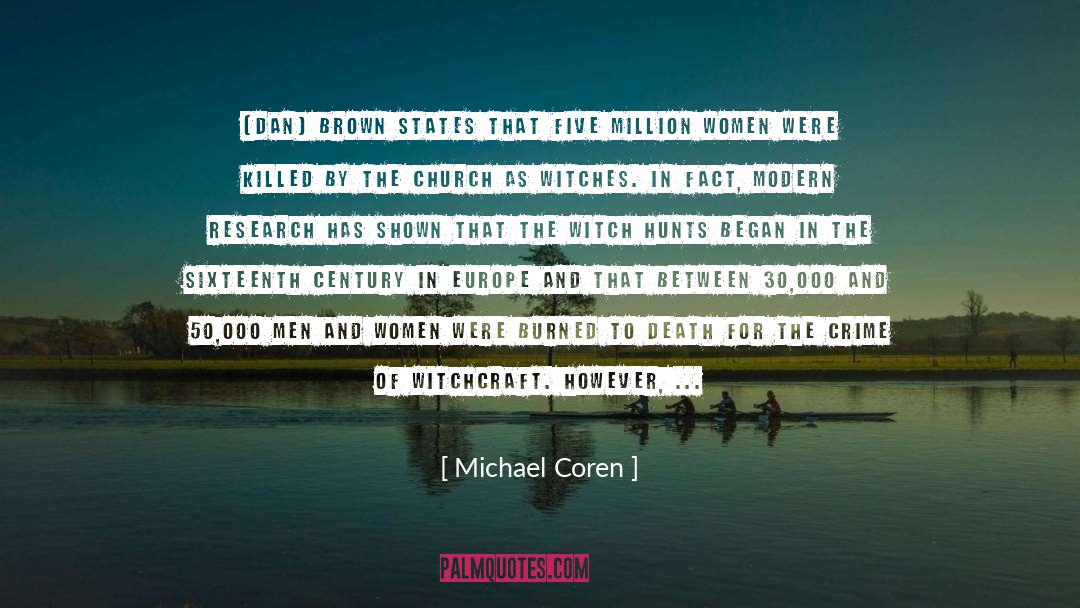
Up until the 1950s the subject of the missionary movement was referred to as "missions" in the plural form. In fact, the term "missions" was first used in its current context by the Jesuits in the sixteenth century. But the International Missionary Council discussions in the 1950s on the missio- Dei convinced most that the mission of the Triune God was prior to any of the number of missions by Christians during the two millennia of church history. Consequently, since there was only one mission, the plural form has dropped out of familir usage and the singular form, "mission," has replaced it for the most part. Nevertheless, most churches and lay-persons hang on the plural missions. For that reason, and to make our point clear here, we will refer to it in this work from time to time while alerting believers to the coming change. ~ Walter C. Kaiser Jr.
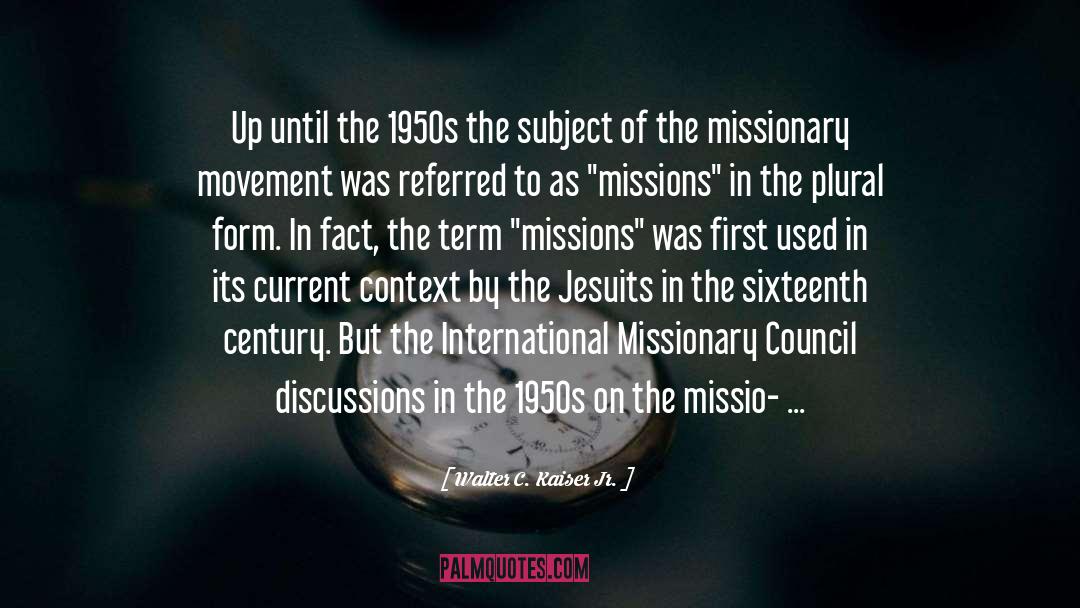
'm constantly depressed by the Mexican gang members I meet in East L.A. who essentially live their lives inside five or six blocks. They are caught in some tiny ghetto of the mind that limits them to these five blocks because, they say, "I'm Mexican. I live here." And I say, "What do you mean you live here - five blocks? Your granny, your abualita, walked two thousand miles to get here. She violated borders, moved from one language to another, moved from a sixteenth-century village to a twenty-first-century city, and you live within five blocks?" ~ Richard Rodriguez

The oldest among Kashmiris often claim that their is nothing new about their condition, that they they have been slaves of foreign rulers since the sixteenth century, when the Moghul emperor Akbar annexed Kashmir and appointed a local governer to rule the state. In the chaos of post-Moghul India, the old empire rapidly disintegrating, Afghani and Sikh invaders plundered Kashmir at will. The peasantry was taxed and taxed into utter wretchedness; the cultural and intellectual life, which under indigenous rulers had produced some of the greatest poetry, music, and philosophy in the subcontinent, dried up. Barbaric rules were imposed in the early nineteenth century, a Sikh who killed a native of Kashmir was fined nothing more than two rupees. Victor Jacquemont, a botanist and friend of Stendahl's who came to the valley in 1831, thought that nowhere else in India were the masses as poor and denuded as they were in Kashmir. ~ Pankaj Mishra
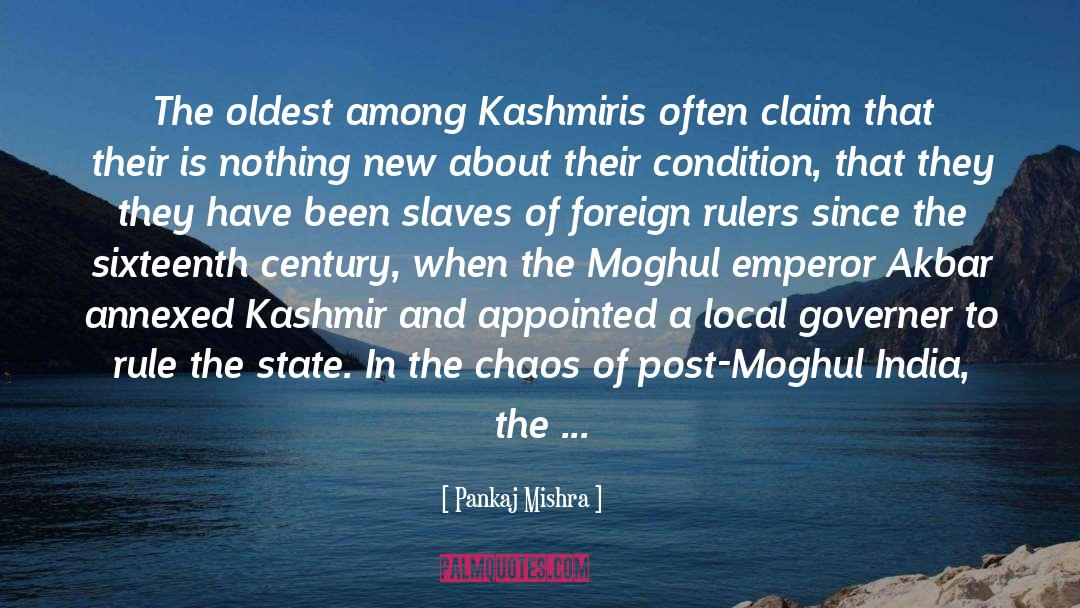
From the very beginning of the movement in the sixteenth century, Anabaptists shared a deep suspicion of the so-called Schriftgelehrten - the university-trained scholars who, they claimed artfully dodged the clear and simple teachings of Jesus by appealing to complex arguments and carefully crafted statements of doctrine. In other words, they confused theological discussions with lived faith. ~ John D. Roth

The point is this: The deepest distinction in Scripture is not between the Old and New Testaments but between the covenants of law and the covenants of promise that run throughout both ... Therefore, the distinction between law and gospel or between the covenant of works and the covenant of grace is not the result of imposing an alien sixteenth-century construct on the biblical text. P.17-18 ~ Michael S. Horton

The closing period of the fifteenth century witnessed the slow but sure increase of the churches of the Brethren. Although far from being unmolested, they yet enjoyed comparative rest. At the commencement of the sixteenth century their churches numbered two hundred in Bohemia and Moravia. ~ Ezra Hall Gillett
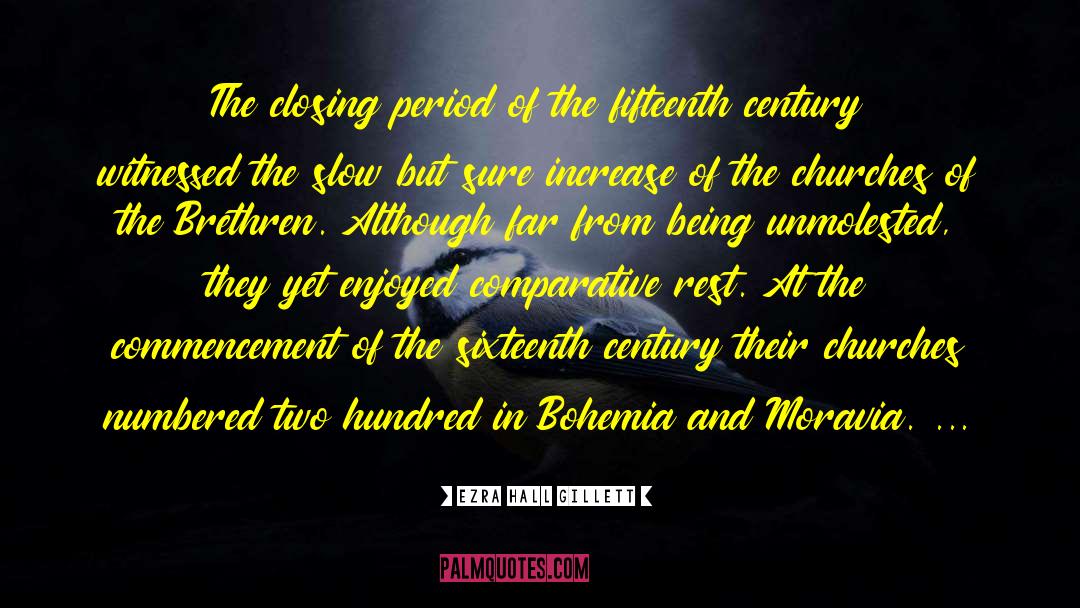
Another good image for the slight edge is Lady Justice, the blindfolded statue. The statue itself, of the woman holding the scales and sword to represent the idea of justice, has been around since the days of ancient Rome, but in those days it didn't wear a blindfold. That part wasn't added until the sixteenth century, during the renaissance in thinking that eventually gave birth to our modern ideas of representative democracy and universal human rights. The blindfold doesn't imply that justice is "blind," as people sometimes assume; its point is that true justice is impervious to external influence. ~ Jeff Olson
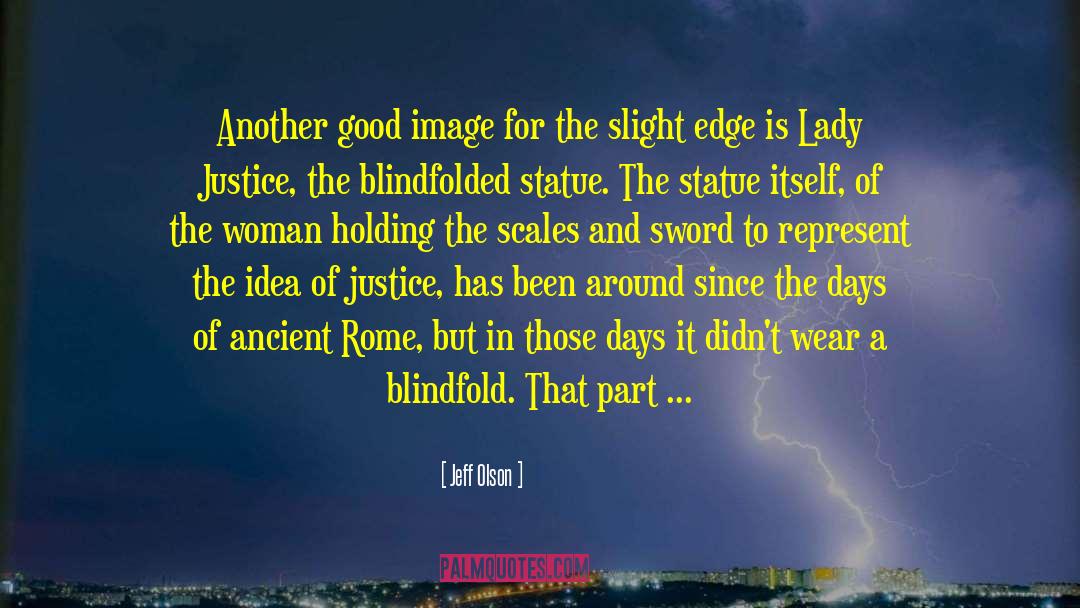
When a Mannerist artist breaks rules he does so on the basis of knowledge and not of ignorance. A considerable amount of North European architecture of the sixteenth century must be excluded for these reasons. ~ John Shearman

In a world threatened by pain and death, stories of miracle workers are a psychological necessity, because the alternative is unmitigated horror and despair. ~ Philip Ball

unlike, say, the sun, or the rainbow, or earthquakes, the fascinating world of the very small never came to the notice of primitive peoples. if you think about this for a minute, it's not really surprising.. they had no way of even knowing it was there, and so of course they didn't invent any myths to explain it. it wasn't until the microscope was invented in the sixteenth century that people discovered that ponds and lakes, soil and dust, even our body, teem with tiny living creatures, too small to see, yet too complicated and, in their own way, beautiful, or perhaps frightening, depending on how you think about them.
the whole world is made of incredibly tiny things, much too small to be visible to the naked eye - and yet none of the myths or so-called holy books that some people, even now, think were given to us by an all knowing god, mentions them at all. in fact, when you look at those myths and stories, you can see that they don't contain any of the knowledge that science has patiently worked out. they don't tell us how big or how old the universe is; they don't tell us how to treat cancer; they don't explain gravity or the internal combustion engine; they don't tell us about germs, or nuclear fusion, or electricity, or anaesthetics. in fact, unsurprisingly, the stories in holy books don't contain any more information about the world than was known to the primitive people who first started telling them. if these 'holly books' really were written, or dictated, ~ Richard Dawkins
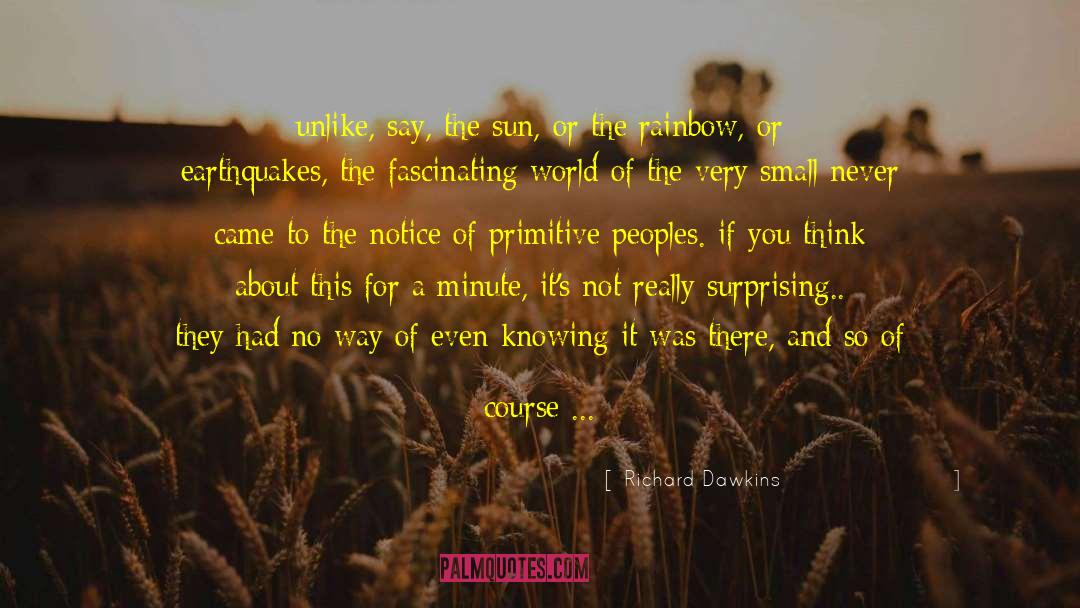
When you consider the superstitions and the imaginings of the old Cornish country-folk up to my grandmother's day, how their lives were swaddled in them from the cradle to the grave, their daily actions in large part determined by them - so many things you would not think of doing, like starting a journey on a Friday, or looking at the moon through a pane of glass, or failing to wear something new on Whitsunday - their minds haunted by ghosts and fears, you have a fair idea of what the minds of these people in the sixteenth century were like. It was a life full of shadows that frightened them and dangers that might come home to them; how much more so in those days when their fears had the sanction, and even the corroboration, of the elect and the intelligent: when a uniform religion existed to enforce its lessons and draw the moral. However, no doubt it filled up life for them, made it more interesting and exciting, more mysterious and incalculable; it added a dimension to it, where the modern uneducated, rid of their fears and ghosts, are apt to find life empty and void of meaning. ~ A.L. Rowse
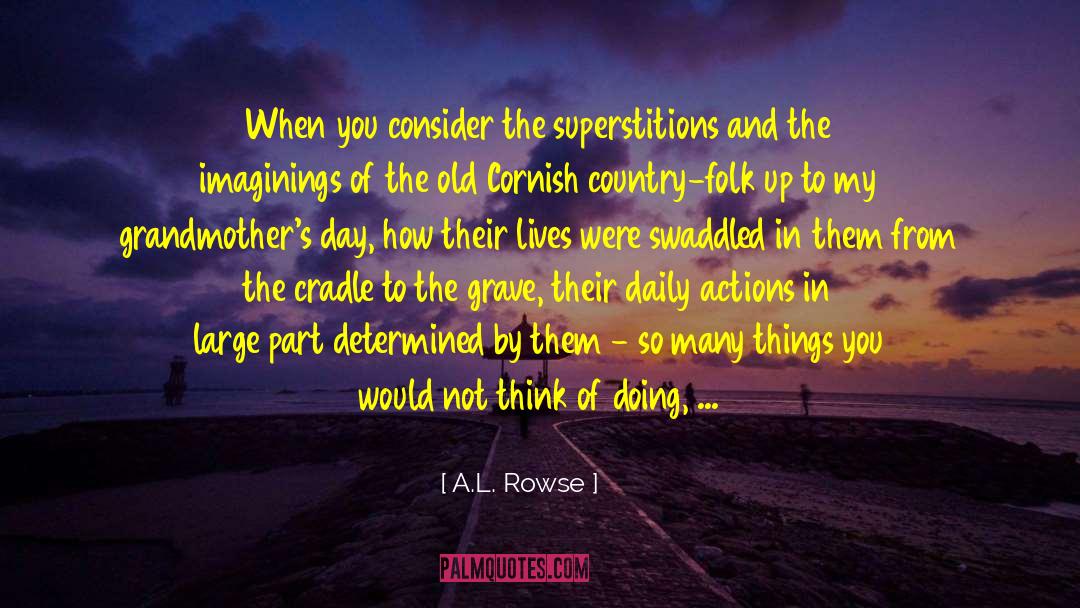
Until the early middle years of the sixteenth century, when King Henry VIII began to quarrel with Rome about the dialectics of divorce and decapitation, a short and swift route to torture and death was the attempt to print the Bible in English. It's ~ Christopher Hitchens

Bombast, an old Swabian name, has inevitably given rise to the idea that Paracelsus's bluster and arrogance lie at the root of the word "bombastic." One feels that it ought to be so, but it is not. Baum means "tree" in German (in the Swabian dialect it is rendered Bom), and Baumbast is the fibrous layer of a tree's bark. But in the sixteenth century "bombast" had also come to mean cotton padding, inappropriately derived from bombax, the medieval Latin name for the silkworm, and it is from this origin that the connotation of puffed up derives. ~ Philip Ball

Every drug, the sixteenth-century physician Paracelsus once opined, is a poison in disguise. Cancer chemotherapy, consumed by its fiery obsession to obliterate the cancer cell, found its roots in the obverse logic: every poison might be a drug in disguise. ~ Siddhartha Mukherjee

I don't think I'm an exceptionally bad reader. I suspect that many people, maybe even most, are like me. We read and read and read,
and we forget and forget and forget. So why do we bother? Michel de Montaigne expressed the dilemma of extensive reading in the
sixteenth century: "I leaf through books, I do not study them," he wrote. "What I retain of them is something I no longer recognize as anyone else's.
It is only the material from which my judgment has profited, and the thoughts and ideas with which it has become imbued;
the author, the place, the words, and other circumstances, I immediately forget." He goes on to explain how "to compensate a
little for the treachery and weakness of my memory," he adopted the habit of writing in the back of every book a short critical
judgment, so as to have at least some general idea of what the tome was about and what he thought of it. ~ Joshua Foer

Newly powerful nations, with the exception of Spain, showed themselves as capable of great achievement as the Italians had been. From the sixteenth century onward, the history of European thought is dominated by the Reformation. The Reformation was a complex many-sided movement, and owed its success to a variety of causes. In the main, it was a revolt ~ Bertrand Russell
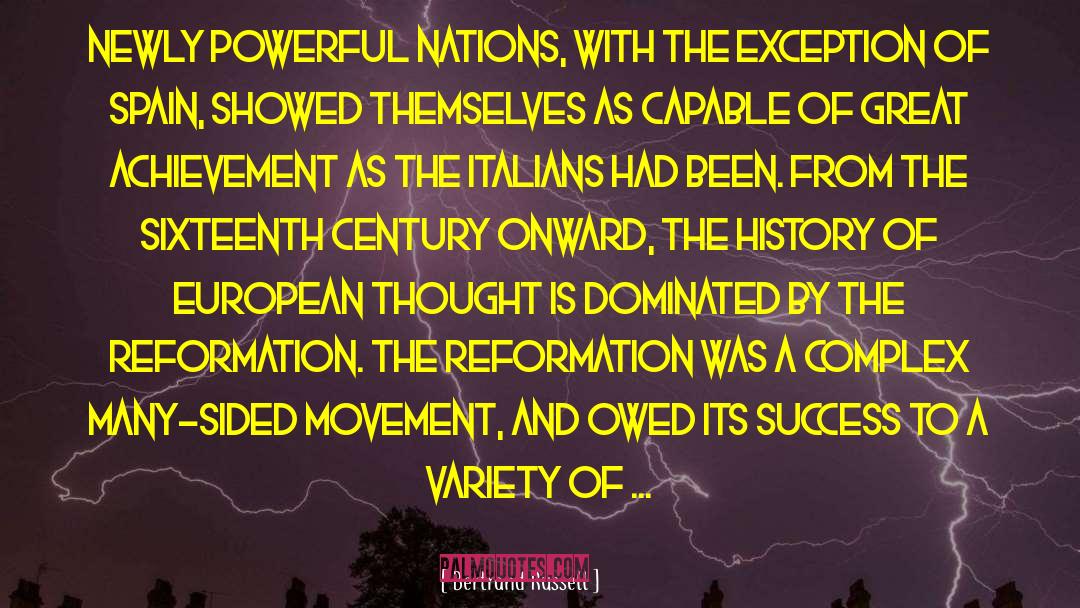
In 1546 a band of weevils were tried for damaging church vineyards in St Julien. Such trials were rife in the sixteenth century, and the distinguished French lawyer Bartholomew Chassenée rose to fame as an advocate for animals. His work is commemorated in Julian Barnes's mischievous short story 'The Wars of Religion', in which excommunication is sought for a colony of woodworm which had gnawed away the supporting legs of the Bishop of Besançon's throne, causing him to be 'hurled against his will into a state of imbecility'. ~ Richard Mabey

American Black Chamber, borrowing the name from the sixteenth-century cabinet noir, the secret letter-opening and resealing facility of King Henry IV of France. ~ Gabriel Schoenfeld

Put yourself in the position of an up-and-coming artist living in early-sixteenth-century Italy. Now imagine trying to distinguish yourself from the other artists living in your town: Michelangelo, Raphael, Leonardo, or Titian. Is it any wonder that the Italian High Renaissance lasted only 30 years? ~ Jerry Saltz
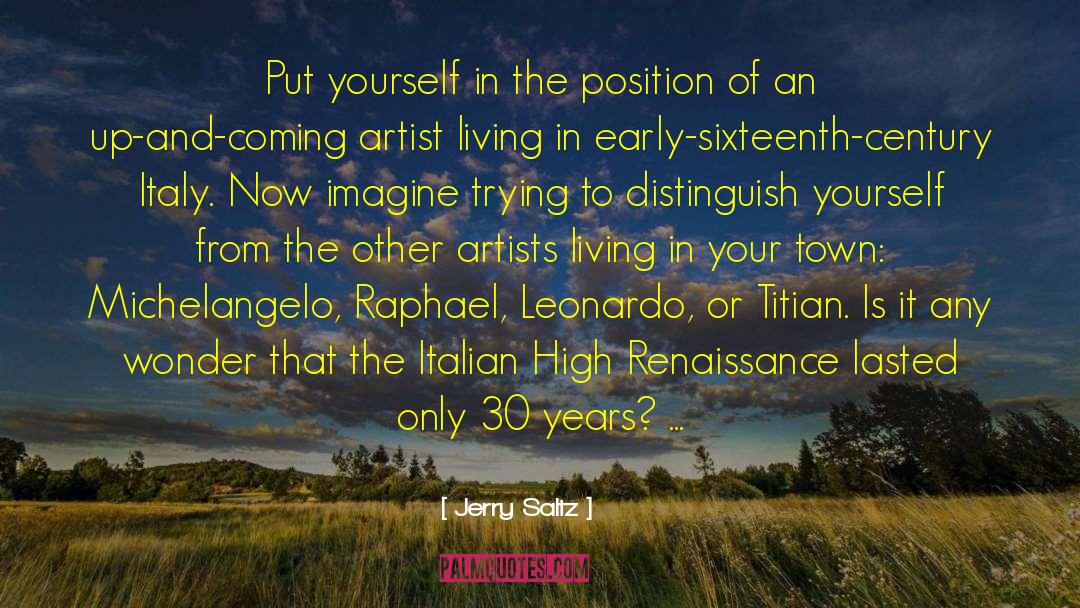
In the sixteenth century in England, dictionaries such as we would recognize today simply did not exist. If the language that so inspired Shakespeare had limits, if its words had definable origins, spellings, pronunciations, meanings - then no single book existed that established them, defined them, and set them down. ~ Simon Winchester

The great impact of Hellenistic culture was, however, no in natural science, but in the more Plato-inspired imaginative literature. The modern novel has its origins in the ultra-heroic and fantastic literature of the Hellenistic world intellectually centered in Alexandria. The life of Alexander the Great was itself one of the prime genres of Hellenistic romanticized literature, and remained so into the sixteenth century. ~ Norman F. Cantor
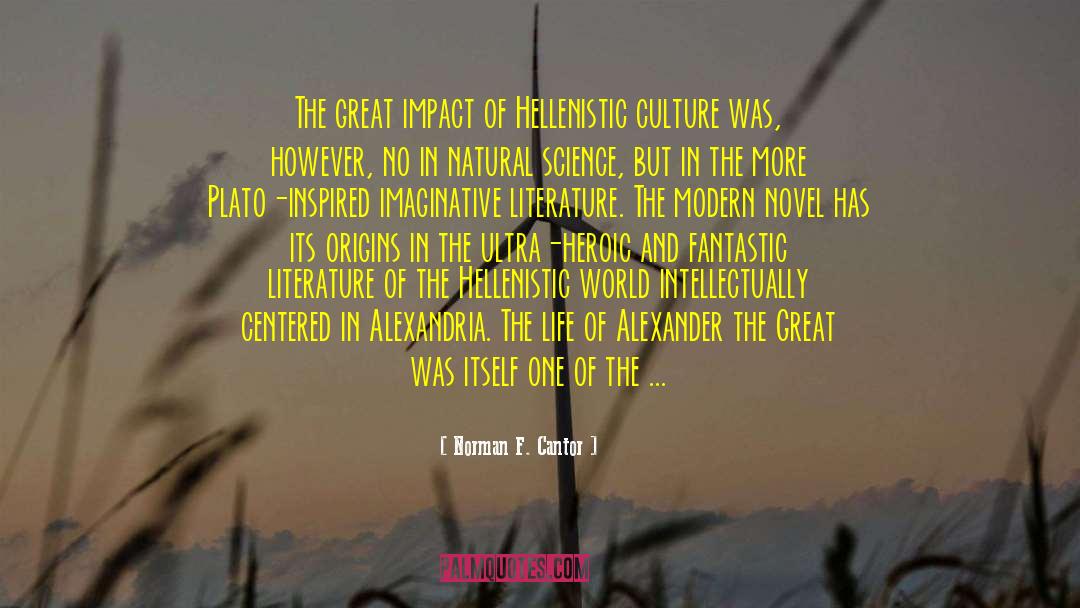
Moving forward fourteen hundred years, to sixteenth-century Europe, we hear a similar lament from the sister of the Holy Roman Emperor: "It is hard enough to marry a man . . . whom you do not know or love, and worse still to be required to leave home and kindred, and follow a stranger to the ends of the earth, without even being able to speak his language."4 ~ Stephanie Coontz
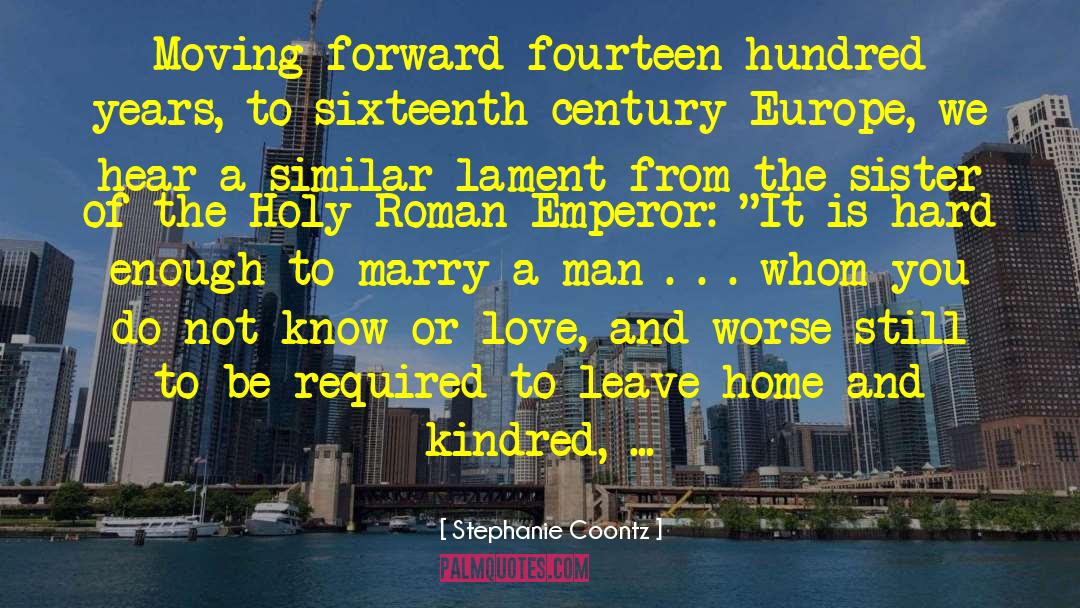
One of the towering figures of the age of Enlightenment was Johann Wolfgang von Goethe, known to this day in German-speaking lands as the poet of princes and prince of poets. Unlike Voltaire, he openly practiced esoteric disciplines, particularly alchemy. He wrote a famous verse about the Cathars, which translated says: "There were those who knew the Father. What became of them? Oh, they took them and burned them!" Goethe's chief work, of course, is his Faust. As noted in chapter 8, the figure of Faust was inspired by the image of the early Gnostic teacher Simon Magus, one of whose honorific names was Faustus. While in Christopher Marlowe's sixteenth-century play, ~ Stephan A. Hoeller

And there was never a better time to delve for pleasure in language than the sixteenth century, when novelty blew through English like a spring breeze. Some twelve thousand words, a phenomenal number, entered the language between 1500 and 1650, about half of them still in use today, and old words were employed in ways not tried before. Nouns became verbs and adverbs; adverbs became adjectives. Expressions that could not have grammatically existed before - such as 'breathing one's last' and 'backing a horse', both coined by Shakespeare - were suddenly popping up everywhere. ~ Bill Bryson

I was a gay man living in the epicenter of 20th-century America's worst health epidemic. ~ Robert Gober

Foolish men imagine that because judgment for an evil thing is delayed, there is no justice; but only accident here below. Judgment for an evil thing is many times delayed some day or two, some century or two, but it is sure as life, it is sure as death. ~ Thomas Carlyle
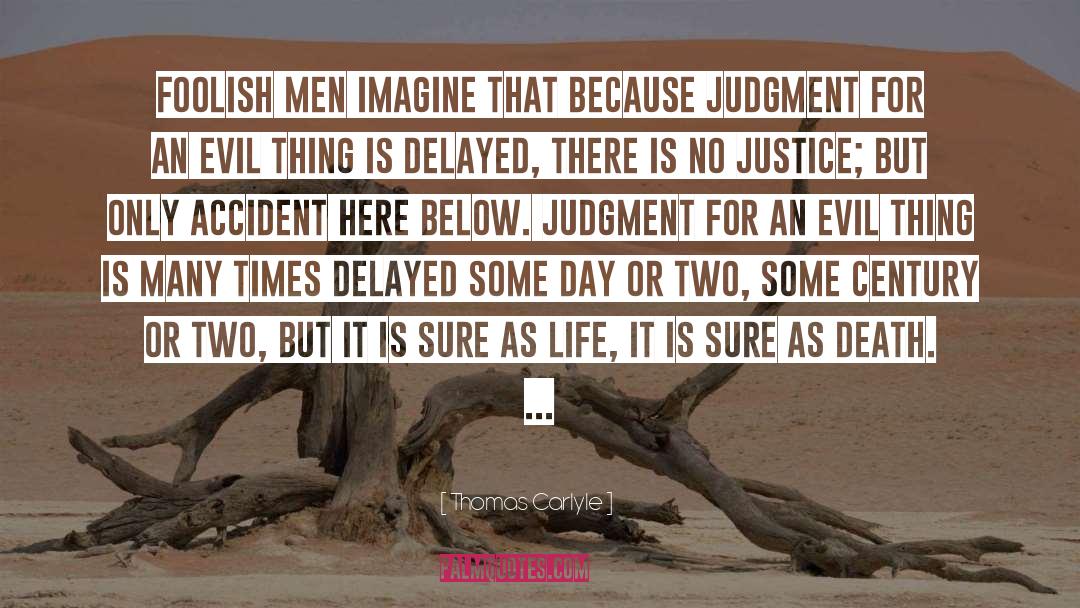
. . . to voice private sympathies in the context of an official proceeding would require Washington to become, in his own words, 'lost to my own character.' Here, in this reference to character, Washington hit upon the essential difference between himself and Arnold. Washington's sense of right and wrong existed outside the impulsive demands of his own self-interest. Rules mattered to Washington. Even though Congress had made his life miserable for the last four years, he had found ways to do what he considered best for his army and his country without challenging the supremacy of civil authority. To do otherwise, to declare himself, like the seventeenth-century English revolutionary Oliver Cromwell, master of his army and his country, would require him to become 'lost to my own character.' For Arnold, on the other hand, rules were made to be broken. He had done it as a pre-Revolutionary merchant and he had done it as military governor of Philadelphia. This did not make Arnold unusual. Many prominent Americans before and since have lived in the gray area between selfishness and altruism. What made Arnold unique was the god-like inviolability he attached to his actions. He had immense respect for a man like Washington, but Arnold was, in the end, the leading person-age in the drama that was his life. Not lost to his own character, but lost in it, Arnold did whatever Arnold wanted. ~ Nathaniel Philbrick

The demolishment of the power of organized Christianity in the Western world to finally realize the emancipation of women and give them the vote in 1920. Women couldn't even own property in their own names until the last quarter of the 19th century in America. ~ John Shelby Spong
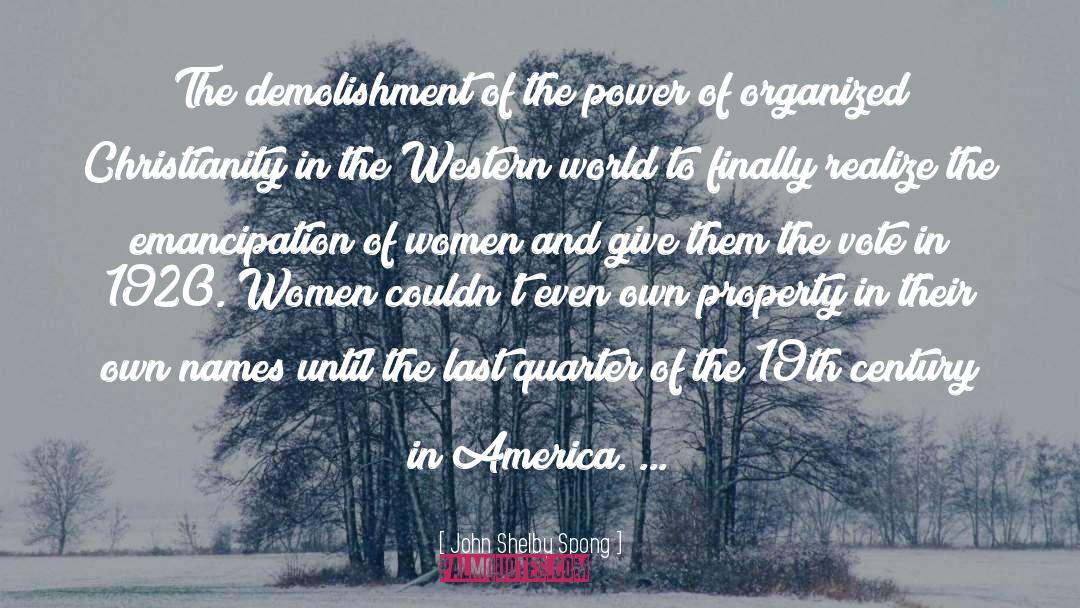
On a bright Sunday morning in the early years of the last century, ~ Cynthia Voigt
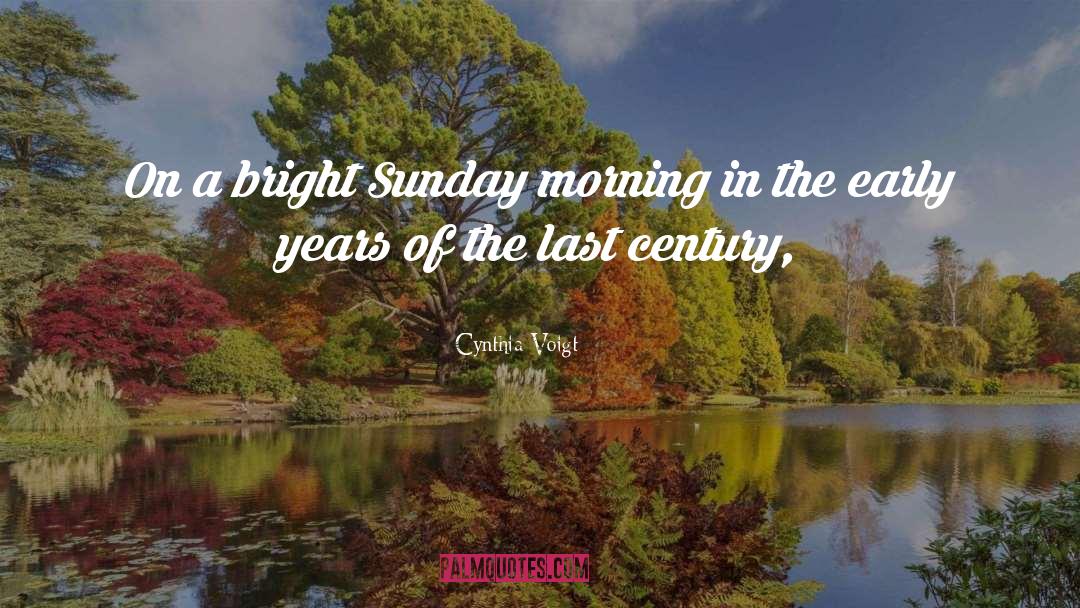
It seems to me that if you were to take almost any half-century in history, you'd find a grand societal tug-of-war between the community and the individual. ~ Lauren Groff
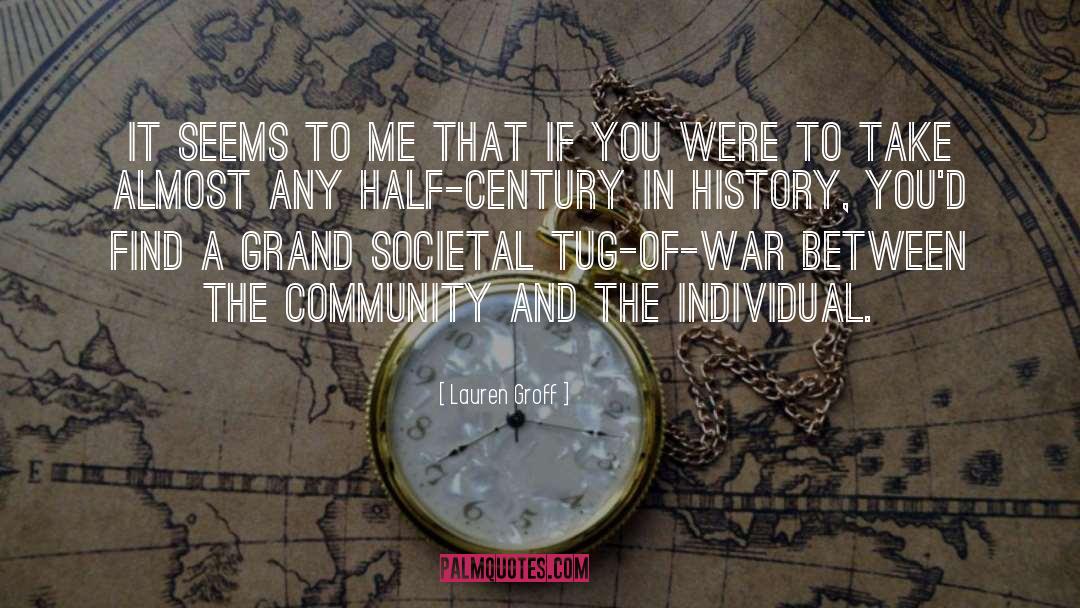
In the fourteenth century eighty thousand of these Covenanting Presbyterians were found in Austria and maintained their principles to the death. ~ Anonymous
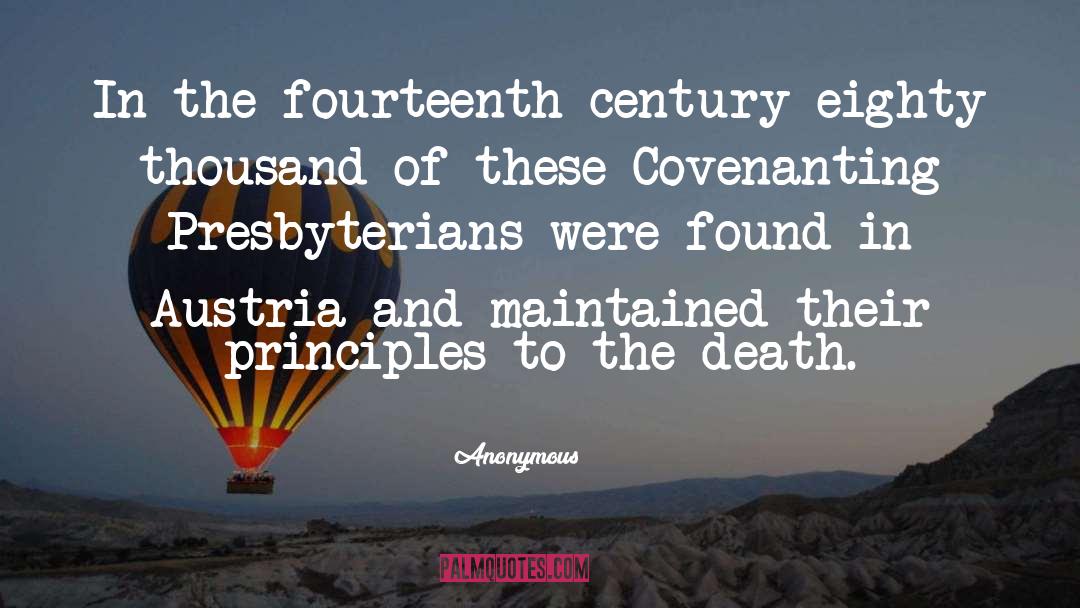
The expression 'to lose one's faith', as one might a purse or a ring of keys, has always seemed to me rather foolish. It must be one of those sayings of bourgeois piety, a legacy of those wretched priests of the eighteenth century who talked so much.
Faith is not a thing which one 'loses', we merely cease to shape our lives by it. That is why old-fashioned confessors are not far wrong in showing a certain amount of scepticism when dealing with 'intellectual crises', doubtless far more rare than people imagine. An educated man may come by degrees to tuck away his faith in some back corner of his brain, where he can find it again on reflection, by an effort of memory: yet even if he feels a tender regret for what no longer exists and might have been, the term 'faith' would nevertheless be inapplicable to such an abstraction, no more like real faith, to use a very well-worn simile, than the constellation of Cygne is like a swan. ~ Georges Bernanos
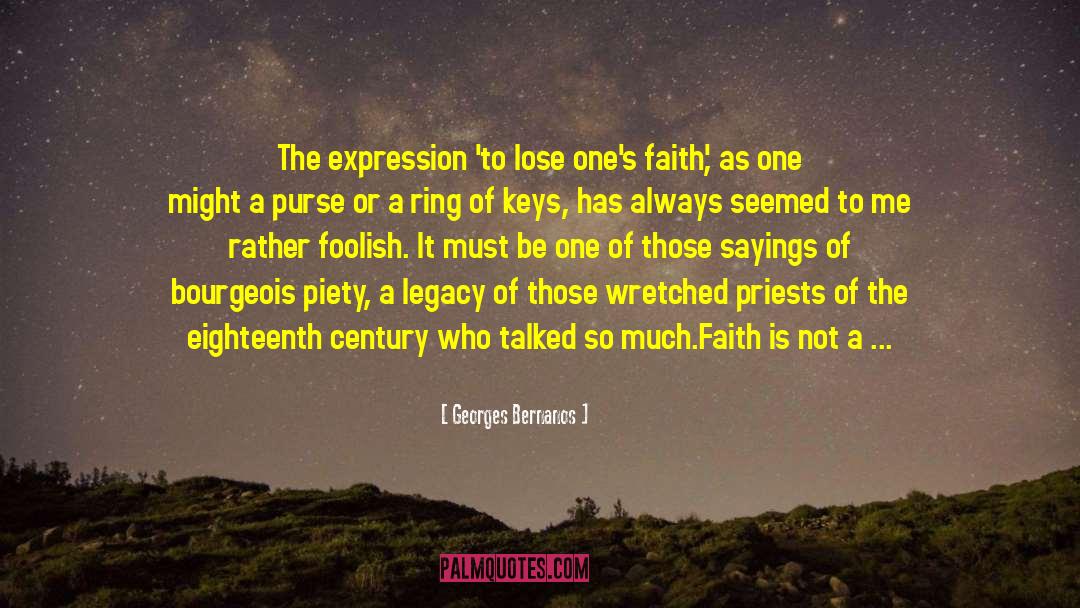
Many of the problems the world faces today are the eventual result of short-term measures taken last century. ~ Jay Wright Forrester
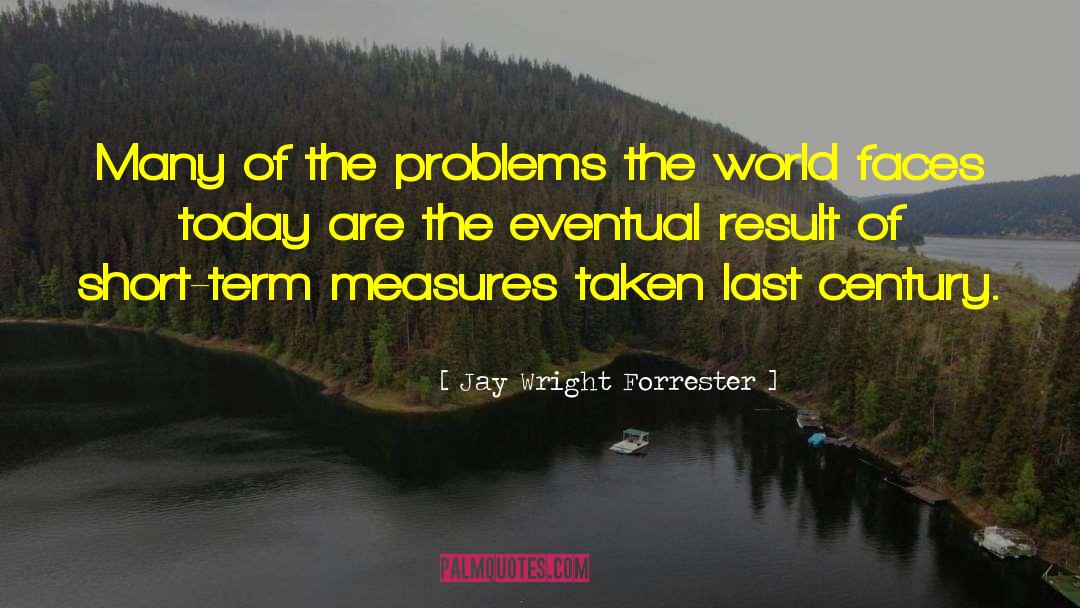
Studying organisms at a molecular level was totally compelling because it was moving from being a naturalist, which was the 19th-century kind of science, to being very focused and really getting to the heart of these molecules. ~ Elizabeth Blackburn
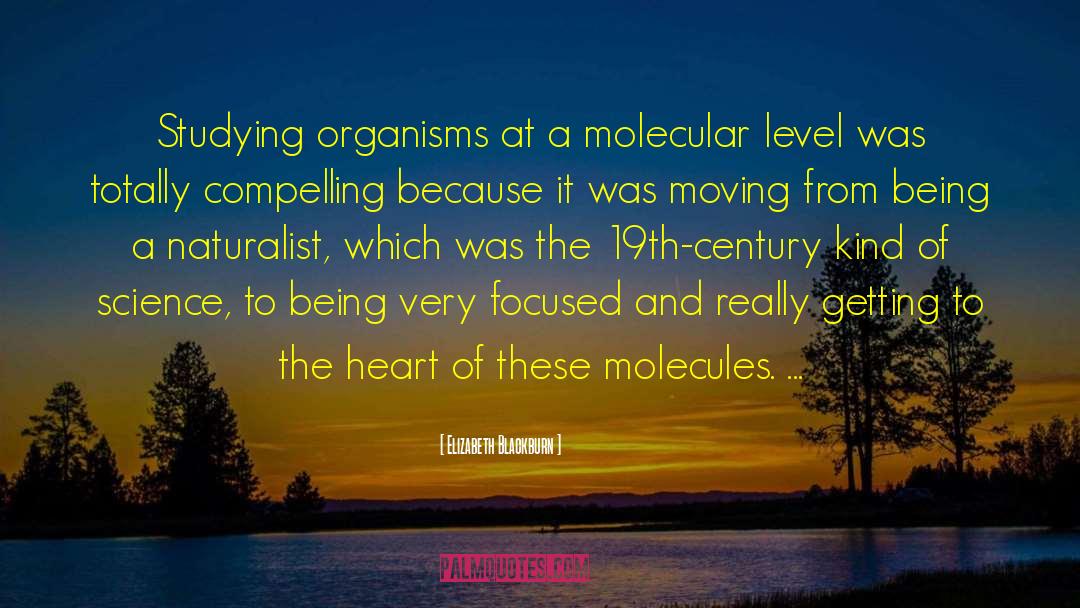
The things you're passionate about and interested in, get experience with them by going deep on projects. I would encourage science projects, plays. Pursue science, math, writing, history - the 21st century demands a lot of cross-disciplinary thinking. ~ Megan Smith

In many respects fascism not only is here but has been here for nearly a century. For what we call liberalism
the refurbished edifice of American Progressivism
is in fact a descendant and manifestation of fascism. ~ Jonah Goldberg

Science is our century's art. ~ Horace Freeland Judson
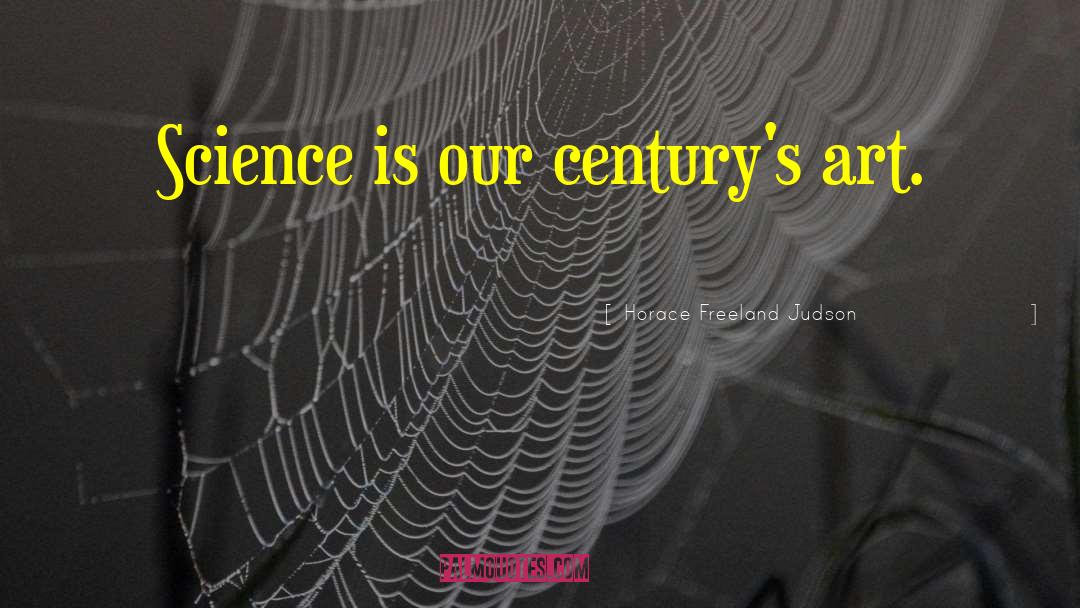
So far as we know, Earth is the only planet which supports life, and it is the only planet on which we can survive. Our bodies and our minds are fashioned by it. Our hearts resonate with it. There will be little joy for the human spirit if we destroy the natural fabric of Earth with nothing left to do but go shopping. When we imagine the world a century from now, when we look our great grandchildren in the eye and see them smiling back at us because they know we cared for them, we smile too! ~ Bob Brown

On the east side of the street, the dark old factories - Civil War factories, foundries, brassworks, heavy-industrial plants blackened from the chimneys pumping smoke for a hundred years - were windowless now, the sunlight sealed out with brick and mortar, their exits and entrances plugged with cinderblock. These were the factories where people had lost fingers and arms and got their feet crushed and their faces scalded, where children once labored in the heat and the cold, the nineteenth-century factories that churned up people and churned out goods and now were unpierceable, airtight tombs. It was Newark that was entombed there, a city that was not going to stir again. The pyramids of Newark: as huge and dark and hideously impermeable as a great dynasty's burial edifice has every historical right to be. ~ Philip Roth

